#how many times will I type the origins of the French Revolution
Text
it's easy to say "let's not ignore the negatives" about the french revolution. it's not as easy to see just what the "negatives" were.
the french revolution did not bring about a "power vacuum". the legislative assembly was formed as soon as the constituent assembly completed a new constitution and dissolved itself. in the constituent, the legislative, and the national convention, at any time, a president would be elected every 15 days. the word "anarchy" carried with it very derogatory notions, and even marat and robespierre condemned it.
the "if violent, then don't" type of criticism to the frev is reductive, and risky of using double standards.
a)
it is reductive because "the frev" is a long period across a vast geographical area (if we say the frev spanned 1789-1799, then haiti was not independent during this time).
are we talking the potential violence of the louis xvi's german and swiss guards, or the parisian urban poor running to seize arms in the bastille to protect themselves?
are we talking the national guard shooting the peaceful petitioners calling to put louis xvi on trial for his fleeing to varennes on 17th july 1791, or are we talking about marat's strongly-worded condemnation of the national guard in response (l'ami du peuple no.524, 20th july, 1791)?
are we talking the declaration of pillnitz was on 27th august 1791, where prussian and austrian armies vague-posted about forming a military coalition against the constituent assembly, or are we talking brissot and his friends' eagerness to declare war and even potentially to extend the revolution beyond metropolitan france, or are we talking the consequence of brissot's decision of rushing into war with an army so untrained, so underpaid, so unarmed?
you get the idea. to vaguely condemn violence would obfuscate everybody's position, and nullify any discussion of just what course of action to take in order to build a republic from scratch.
b)
it is risky of double standards, because violence was not an exception, especially not in the late 18th century. before this was the seven years' war. after this was the empire. i strongly recommend reading about the united irish rebellion of 1798 and the british response to that, and see what violent injustice "some of the most famous names" of ireland in the same time period had to face.
as for the "original goal" of the french revolution, more well-read mutuals can brief you on just how many goals the jacobins had alone. the goals of the gironde were a very different set of goals from the very beginning, the goals of the monarchiens more different still.
but in any case, the "original goal" was not "independence". france was (and is) an economically strong part of the imperial core. one of the goals of the haitian revolution was independence from france.
that the bourbons restoration happened at all says everything about bonaparte's failure to withstand the coalition wars that came back to him again and again and again, like waves on a shore (see my point on brissot above). it says very little about the Spirit of revolution, which in the end shall save us all.
They say revolutions turn out badly. But they're constantly confusing two different things, the way revolutions turn out historically and people's revolutionary becoming. These relate to two different sets of people. Men's only hope lies in a revolutionary becoming: the only way of casting off their shame or responding to what is intolerable.
(Gilles Deleuze, Negotiations, New York: Columbia University Press 1995,p. 171, which can be read here, in its entirety.)
just what name should be given to the period of july 1793 - july 1794 is a matter that is still not settled among historians themselves. the word "terror" got its negative notions from tallien, who was very biased, so biased in fact he tried to assassinate his opponents in the convention. tallien did not succeed despite the execution, without a trial, of his opponents (maximilien robespierre, augustin robespierre, aristide couthon, antoine saint-just, françois hanriot, and some one hundred others). he did not seize more power himself. he himself was denounced by his colleagues as complicit in violent excesses. he shifted blames onto his colleagues in turn. his career was more or less ended by the moderates he sought to please.
and then the "reign" part was only added when this term entered the english-speaking parts of the world. so this name was both biased and non-universal. it is still biased and non-universal.
i genuinely do not wish to tell anybody what to do, but if you say "reign of terror" uncritically, people are going to tell you that you are using a reactionary term, because you are.
26 notes
·
View notes
Text
20 questions for fic writers
Tagged by @zyrafowe-sny, thank you!
1. How many works do you have on AO3?
21 at this point (and I’m sure glad you’re not asking about older platforms because uhhhh. My FFN era was terrifying)
2. What's your total AO3 word count?
257,205. Huh.
3. What fandoms do you write for?
Welp, Re-Animator, currently. But the majority of my works is a result of a powerful The Owl House obsession, and I do have another TOH fic in the making. Star Trek, though it’s really odd how little Trek fic there is on my account – I guess that’s because most of my hyperfixation went into the papers I published on the franchise.
Terra Ignota my beloved, but the books are so incredibly well-written, I get scared whenever I want to write anything about those characters. Everything I do is going to suck in comparison (and the one fic I did write indeed sucks balls). I had some flings with Sonic (kek), Dr. Horrible’s Sing-Along Blog, and before that, Phineas and Ferb. In the pre-AO3 era, The Penguins of Madagscar (a fic after which I stopped writing for almost a decade), Discworld, Kick-Ass (my first English-language fic; what a trainwreck), Invader Zim, Storm Hawks (oh boy), Foster’s Home for Imaginary Friends, Sherlock Holmes (the original, ACD one), Teen Titans, and some insane amounts of insanely bad, angsty Xiaolin Showdown fics with insane ships and insanely bad characterization. Look, I was 15. I’m pretty sure there was even more, and I can only be grateful that I don’t remember.
4. What are your top 5 fics by kudos?
Oddly enough, Inhale, Hold, Exhale with over 1,1k, even though it was just an ultimate traumadump. Then, A Silver Platter (992), A Comparative Study in Redemption Arcs (789), The Matter at Hand (778), and The Deal (718).
5. Do you respond to comments? Why or why not?
I do! First, they make me happy and I’m grateful for them. But it’s also just a polite thing to do, and honestly? when I want to comment under a fic and I see OP doesn’t respond to comments, sometimes I shrug and decide kudos will suffice (not proud of myself for doing that, but oh well).
There were some comments I left unanswered, but those were from people I know IRL and I answered them somewhere else, or they were hate comments. Aaaand some comments I left unanswered back when I didn’t know it was possible to answer on AO3, and now answering them would be too awkward.
6. What's the fic you wrote with the angstiest ending?
I write almost exclusively angst, so it’s more of a question about the specific flavor. I guess the biggest number of characters suffer miserably in a very mundane way in A Potter’s Field. In The Deal, the main character suffers in a very mundane way to such an extent, he willingly chooses to be possessed just to feel useful, so there’s that. Both stories have been bookmarked by people with notes such as “jesus fucking christ dude” or just “JESUS CHRIST,” and thus, I consider my mission accomplished and people's days ruined.
7. What's the fic you wrote with the happiest ending?
The Red Crayon. Even I couldn’t write angst about Doofenshmirtz and Perry the Platypus. Like, come on.
8. Do you get hate on fics?
YEAH BABEY. And I don’t mean the ‘I liked the fic, but there’s this thing I disagree with’ kind of comments, I mean the ‘this fic is terrible, have you ever watched the show?’ type of comments. The first time I got one like this, I was crying hysterically for two days.
9. Do you write smut? If so, what kind?
Not sure? This year, I did write some sex scenes or almost-sex-scenes, but the thing is, they were about everything but sex. And one of them was very, very awkward.
10. Do you write crossovers? What's the craziest one you've written?
Nnnope, and I hate those. But at one point, when I was very much into French Revolution, I had some grand plans for a Doctor Who fanfic in which Ten would meet Robespierre and realize he was a good guy.
11. Have you ever had a fic stolen?
I don’t think so? I had my fanart and my photos stolen, yeah, but not fanfic.
12. Have you ever had a fic translated?
Nope, though there was one person who asked if they could do that (I think they lost interest/didn’t have the time).
13. Have you ever co-written a fic before?
Yeah, back in middle school me and my friend ran a blog nobody read, and it was about two Discworld OCs. It was horrible.
14. What's your all-time favourite ship?
Spones (Spock/Leonard ‘Bones’ McCoy). I will go down with it. I’m married to it. I’ve been happily married to it for half of my lifetime (and the entirety of my adult life).
I like other ships in other fandoms, especially the ones with a similar dynamic. Spones, though, is the archetype.
15. What's a WIP you want to finish, but doubt you ever will?
A Star Trek fic about Spock being unable to fully process the death of his pet sehlat, and that fact influencing his approach to animals in the years to come. I’m quite happy with what I have – for instance, there are five pages of Spock and McCoy arguing over the factors that make animals cute, with Spock being super scientific and judgemental, and McCoy having a gotcha! moment when Spock says axolotls are not cute.
I started writing it when I learned about my beloved cat’s diabetis. Then he died, I had a massive depressive episode, and now it’s been almost two years and I still cry because I miss him and he deserved so much better. And perhaps I would be able to finish the fic, given that half of my fics are traumadumps anyway, but I have no idea how this thing is even supposed to end.
16. What are your writing strengths?
POV and characters not knowing things that the audience knows
17. What are your writing weaknesses?
Getting to the point. Or, like, having any point.
18. Thoughts on writing dialogue in another language for a fic?
Erm. Everything I write is in another language. English is not my native language, I never had private lessons, I still don’t understand how the tenses or the punctuation work. But in case of Luz and Camila, I do tend to use Spanish words or expressions from time to time.
19. First fandom you wrote for?
Okay, so back when I was 7, I had no idea fanfic existed or that you could just use the names and locations somebody else created, so I was writing stuff that was very much the terf-created wizard boy and very much Lord of the Rings, but like. With different names. The headmaster of the magical school was named fucking Ambli Dimbli. The first fanfic that I knew that was a fanfic, though, was for Terry Pratchett’s Discworld.
20. Favourite fic you've ever written?
The Matter at Hand. It’s not my most popular fic, it doesn’t have my favorite TOH character in it, but it’s about politics and scapegoating, and it has puns in it. And I’m really proud of how everyone in this story sucks. I like it when characters suck.
5 notes
·
View notes
Text
Vote based on the design AND the backstory
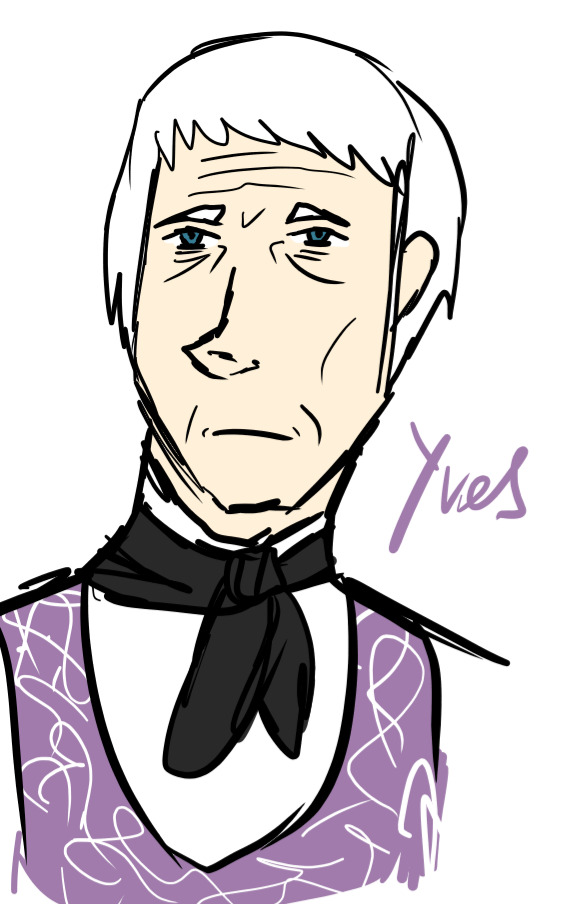
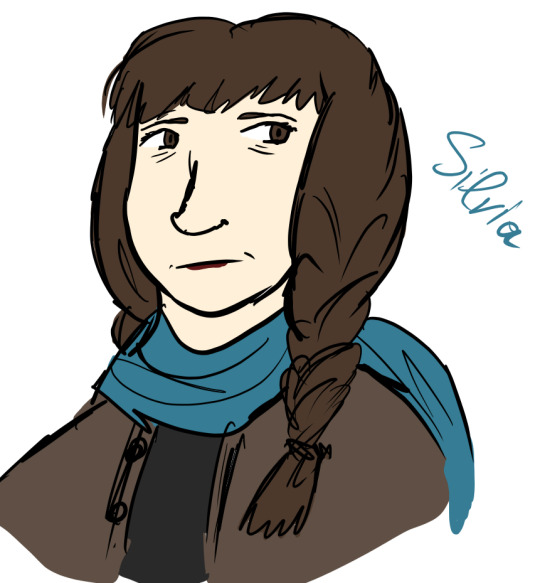
Yves
(The Choice to Love - 2017-2018)
Role: side character
He is Jeannine's grandpa. He used to be a French noble until the revolution, during which he fled with his wife and many children, after learning that his neighbour had been killed and not wanting to risk anything. He had a rough time learning English and adapting to his new place, but eventually created a stable living for his immediate family, and his grandchildren later on.
Vs
Silvia
(The 5 Books of the Immortals - 2015-2016)
Role: minor character
Lev's mother. She remained a tsarist even after the instalment of the USSR, and initially hoped that hiding away in the siberian wilderness would help matters, but as her children grew up, she realised they had to flee altogether. They secretly rode cargo trains until they finally escaped; she still misses her country but she began missing it, as in what it used to be, even when she was still there. As a person, she is motherly, but also very, very fierce.
Additional info
The Choice to Love - 2017-2018
Status: incomplete (Romanian, English, a few chapters typed, many scenes handwritten, many comic scenes drawn etc, full outline done)
Form: novel
Genre: Victorian romance
Ernest and Jeannine are made to enter an arranged marriage. She is glad because she already had a crush on him, but he feels guilty that he can't force himself to fall in love. Many many many side characters all play a role in, directly or indirectly, imparting life lessons on the protagonists. The side characters also have their own complex dramas and lives. Ernest has a found family dynamic with his household servants, but has some sort of conflict with his family of origin, which gets somewhat solved by the end of the book, but under very dramatic circumstances. Jeannine is always by his side, so he realises hey she means a lot to me.
Vs
The 5 Books of the Immortals - 2015-2016
Status: completed (Romanian, typed)
Form: novel
Genre: war story, drama
Lev is a very bright chemistry student. He has the time of his life in college, making close friendships (and meeting the love of his life, Alyona), but the fairy tale is cut short with the announcement of WW2. He goes to war, but Alyona, how his wife, volunteers to join the war, just to stay with him (she's now a medic, being a medicine graduate). Lev's best friend is Zephyr, an uptight straight A student who learned to loosen up thanks to him.
The found family vibes are strong with this one. At some point they find a teen boy who was pretending to be 18 and they all but adopt him. The story has many very dramatic and heart wrenching moments, but also many heartwarming moments. For example, at the end, the boy is finally reunited with his father. It's not a very mature or that logical of a story, but it's my first "masterpiece", and I still find it very beautiful, especially the characters (they all love each other so much!!!).
(I changed the names and details for the purpose of this poll because there were some things that were just plain inaccurate or just that I changed after having finished the novel).
1 note
·
View note
Text
The Library of Unrequited Love by Sophie Divry. Translated by Siân Reynolds
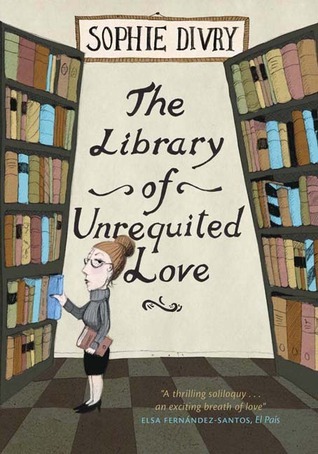
Read time: 3 Days
Rating: 4/5
The quote: Actually, modern history can be summed up in three major events that altered our view of the world for good: the French Revolution, the bloodbath of the Great War, and the invention of the contraceptive pill.
I really recommend reading this in one sitting if you can. The librarian's perspective and take on the library changes throughout. From the glossy paraprofessional to near brutal honesty that will hit home for many in the industry. That said it is accessible to the non-librarian and to a lesser extent the casual reader but the topic is definitely pointed with lots of references and comments about the systems and policies of libraries. For the casual reader, the unusual writing style and some of the librarian’s opinions could be quite confronting.
But I do think this is worth reading even if just for the style. The whole book is a one-way conversation (a combination of a monologue and soliloquy) that takes place over 2 hours in the morning as the library is preparing to open. It is quite unlike anything I have ever read before. The one-way conversation with no breaks and many, many topic changes takes some serious getting used to as you read.
Just some of the topics covered by Divry in her book through her librarian protagonist. Dewey and his system, a bit of French history, a bit of library history, the library hierarchy, the type of person who never that never comes into the library, censorship is its softest form, the forcing of class onto readers and the traditional reserve shelves. As someone trained in the industry it all hit so close to home. Like reserve shelves are just awful, they are great for saving space but they are so intimidating for readers. The classics debate is horrendous but I am firmly of the opinion that let people read what they want and eventually that will likely include some classics. Forcing them upon readers just alienates them from reading period. I just enjoyed the Frend history section I’ve never looked at French history much. All the Dewey info is brilliant I couldn’t get over how well executed that was.
It feels like there are words from the reader we don't know. The librarian responds to unknown statements at times. But it's si effective because there is enough feedback to guess what was said. There is a smart reading choice to provide little to no background on the readers’ character, though there is some implication that they are on the younger side and are definitely a regular. After I reread the blurb we do know he is male. It is worth remembering the book is a translation of Divry’s French original. I’m guessing the gender comes through in French via the grammatical gender it uses.
The unrequited love of the title feels like it is twofold. The librarians’ non-relationship with Martin is told so well. The reader is drip-fed information and it all really only comes together at the end. There also seems to be something of an unrequited love for the library itself which more than seeps through by the end. She just wants to be acknowledged and respected by colleagues and patrons alike.
There really isn’t much more I can say about this other than to say it was an experience and I’m so glad I read it. It took weeks of waiting to get my hands on it (due to covid related issues) but the wait was worth it. Think this is a rather unique experience, particularly for those in the industry.
#the library of unrequited love#sophie divry#siân reynolds#sian reynolds#book review#ktreviews#read 2021#bookdragon#booklr
0 notes
Text
Reading for 6 September, 2019/20 Fructidor CCXXVII
The reading skips a week because Labor Day was September 4th when I had this class (and this class was twice a week, Mondays and Wednesdays but now Wednesdays and Fridays lol).
“Saint-Domingue, Slavery, and the Origins of the French Revolution” by Jeremy D. Popkin in From Deficit to Deluge
“The Global Underground: Smuggling, Rebellion, and the Origins of the French Revolution” by Michael Kwass
“The Fall from Eden: The Free-Trade Origins of the French Revolution” by Charles Walton
“Revolutionary Regeneration and the First French Empire” by William Max Nelson, the last three in The French Revolution in Global Perspective
2 notes
·
View notes
Text
Anonymous asked: I love your long posts which make for great reading and I wish you could do more because you’ve got such a range of astonishing interests. I’m hoping because you’ve served in the military you would have studied military thinkers. Do you think the Art of War by Sun Tzu is way overrated by everyone? I studied him a bit for my masters but I still couldn’t get my head around him. Interested to know your thoughts. Thanks!
“To lift an autumn hair is no sign of great strength; to see the sun and moon is no sign of sharp sight; to hear the noise of thunder is no sign of a quick ear." - Sun Tzu's Art of War, Chapter IV - Tactical Disposition, Clause 10.
Sounds cool, doesn’t it?
But what the hell does this quote really mean? Do you know what it means? Can anyone else tell me?
Look, I enjoy a good Sun Tzu quote as the next person. Only recently I was exchanging thoughts with a fellow blogger whose studying Thucydides, Clausewitz, and Kissinger for an advanced course at the US Naval War College. Even he prefers Sun Tzu over Clausewitz. I can see why too. If you can make sense of chapter one of Clausewitz’s tome On War you deserve a Nobel Prize.
Unlike my very learned fellow blogger, there are lot of folk who don’t know Sun Tzu at all. They can quote him, but almost certainly out of context. As someone who partly grew up in the Far East and even learned Chinese and Japanese (a pitiful but functional degree of fluency) I’m embarrassed (not hard since I’m English) when I hear other Western compatriots romanticise and elevate Eastern icons to mythic status that the Chinese themselves have never done.
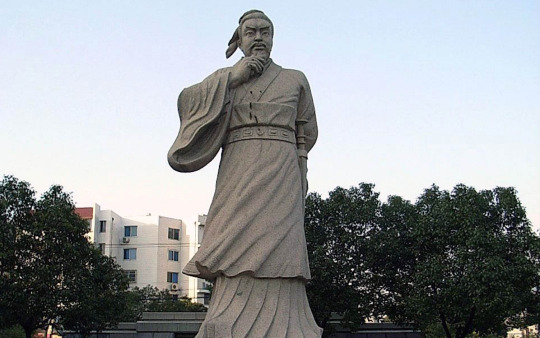
I am even more bemused than embarrassed after having hung up my military uniform for ‘civvy’ corporate clothing at how badly abused Sun Tzu’s book is in the corporate world. In my workplace I grit my teeth at corporate high flyers who mistake a balance sheet for a real battlefield by quoting Sun Tzu out of their arse, and then as self-styled ‘corporate warriors’ work themselves up in a lather of testosterone induced self-importance to crush their corporate enemies into the dust.
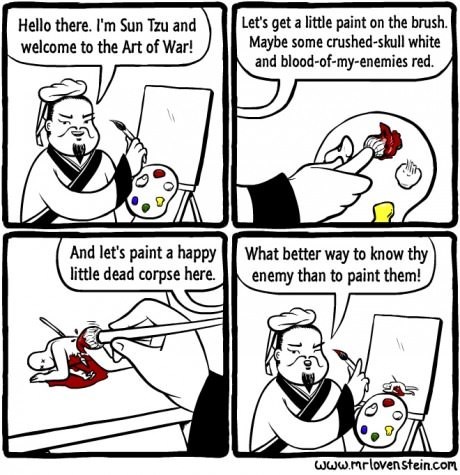
This is why the The Art of War by Sun Tzu has invited a jaundiced eye roll. And rightly so. I can see why many view Sun Tzu as over-rated because many easily impressed people go all woo woo over anything ancient and Eastern.
It’s become a familiar trope to say the art of ‘strategy’ as a science began 2,500 years ago with the writing of The Art of War. I would dispute this. Not that the writing of Art of War was the earliest written but whether I would call it a manual of strategy per se - more on this below in my answer. However you rate or overrate the Art of War it’s important to have perspective and remember this book is written in 512 BC. Other than the bible and some religious books, there are not many books that can survived thousands of years and still remains a steady bestseller and enjoys a wide influence in military academies and army staff colleges today and even as far into board rooms.
The question behind your question is just as interesting to me: why did Sun Tzu and his Art of War gain such traction in the West?
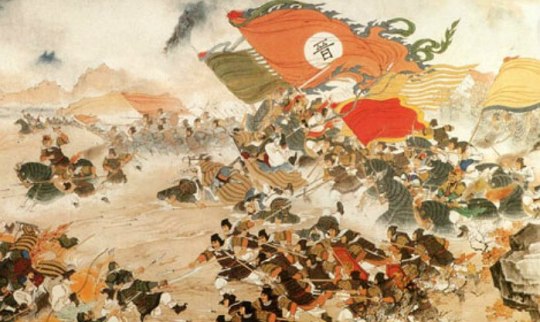
Sun Tzu (544-496 BC) wrote the original text of The Art of War shortly before 510 BC. During most of the past two thousand years, the common people in China were forbidden to read Sun Tzu's text. However, the text was preserved by China's nobility for over 2,500 years. The Chinese nobility preserved the text of The Art of War, known in Chinese as Bing-fa, even despite the famous book-burning by the first Emperor of Chi around 200 BC. The text was treasured and passed down by the Empire’s various rulers. Unfortunately, it was preserved in a variety of forms. A "complete" Chinese language version of the text wasn't available until the 1970s. Before that, there were a number of conflicting, fragmentary versions in different parts of China, passed down through 125 generations of duplication.
Indeed at the beginning of the twentieth century, there were two main textual traditions in circulation, known as the (Complete Specialist Focus) and (Military Bible) versions. There were also perhaps a dozen minor versions and both derived and unrelated works also entitled Bing-fa. Of course, every group considered (and still considers) its version the only accurate one.
When I last visited China before the Covid pandemic for work reason, I had time off to go to a couple of museums that housed the fruits of a number of archeological digs uncovering the tombs of the ancient rulers of China in which sections of Sun Tzu’s works were found. These finds have verified the historical existence of the text and the historical accuracy of various sections. I understand new finds are still being made.

The first complete, consistent Chinese version was created in Taipei in the 1970s. It was titled The Complete Version of Sun Tzu’s Art of War." It was created by the National Defence Research Investigation Office, which was a branch of Taiwan's defence department. This version compared the main textual traditions to each other and to archeological finds and compiled the most complete version possible.
This work was completed in Taiwan rather than mainland China for a number of reasons. Mainland China was still in the throws of the Maoist Cultural Revolution, which actively suppressed the study of traditional works such as Sun Tzu. The mainland had also moved to a reformed character set, while Taiwan still used the traditional character set in which the text was written. Only today is the study of Sun Tzu in mainland China growing, interestingly enough, through the translation of Sun Tzu into contemporary Mandarin. Based on the archeological sources we have today, we are reasonably certain of the historical accuracy of this compiled version that is the basis of what most people use today.
Surprisingly, the Art of War only came to light in the West around the 18th Century.
Historians believe it was first formally introduced in Europe in 1772 by the French Jesuit Joseph-Marie Amiot. It was translated at the time by the title “The thirteen articles of Sun-Tse”. Joseph-Marie Amiot (1718-1793) was not just a Jesuit priest but also an astronomer and French historian, as well as fervent missionary in China. He was one of the last survivors of the Jesuit Mission in China (he died in Beijing).

Many of the historical problems with understanding Sun Tzu's work can be trace back to its first Western translation in French. A Jesuit missionary, Father Amiot, first brought The Art of War to the West, translating it into French in 1782. Unfortunately, this translation started the tradition of mistranslating Sun Tzu's work, starting with the title, The Art of War (Art de la guerre).
This title, copied the title of a popular work by Machiavelli (a criminally underrated writer on military strategy), but it didn't reflect Sun Tzu's Bing-fa, which would be better translated as "competitive methods."
We cannot say what effect being translated by a Jesuit priest had upon the text. It was unavoidable that the work's translation reflected the military prejudices of the time era when war was both popular and Christian. It was also unavoidable that most future translations would reflect some of the first translation's prejudices. However, war was on the verge of becoming much less Christian in the West since this time was the era of the French Revolution (1789).
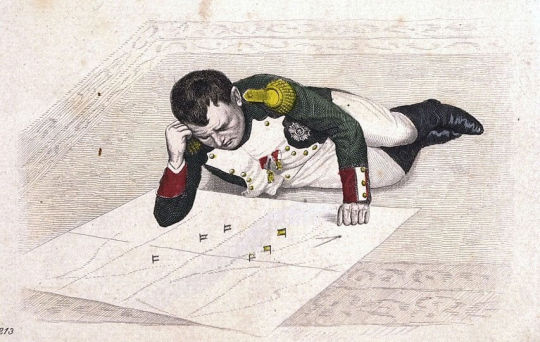
The work might well of slipped into obscurity after its initial publication, but it was discovered by a minor French military officer. After studying it, this officer rose to the head of the revolutionary French army in a surprising series of victories. The legend is that Napoleon used the work as the key to his victories in conquering all of Europe. It is said that he carried the little work with him everywhere but kept its contents secret (which would be very much in keeping with Sun Tzu's theories).
However, Napoleon must have started believing his own reviews instead of sticking with his study of Sun Tzu. His defeat at Waterloo was clearly a case of fighting on a battleground that the enemy, Wellington, knew best. Wellington’s trick at Waterloo was hiding his forces by having them lie down in the slight hollows of this hilly land. This is exactly the type of tactic Sun Tzu warns against in his discussion of terrain tactics.
After Napolean, Sun Tzu's theories made their way into western military philosophy. Many of his ideas are reflected in the ideas of work of Carl von Clausewitz. who defined military strategy as "the employment of battles to gain the end of war."
The first English translation of The Art of War is less than a hundred years old. Captain E. F. Calthrop published the first English translation in 1905. Lionel Giles, an assistant curator at the British Museum and a well-known sinologist and translator, attacked this early translation, and he published his own version in 1910. It soon began to be read alongside Clausewitz’s 8 volumes of turgid German military prose.

It wasn’t long before military thinkers were ditching Clausewitz for Sun Tzu because no one could get past Chapter One of Clausewitz’s On War. The “Clausewitz is dead, long live Sun Tzu” school was first championed by the influential British military theorist B.H. Liddell Hart in the 1920s. Basil Henry Liddell Hart (1895-1970) was a captain in the British Army. He was a very influential military theorist and historian, and author of several books such as The Future of War (1925) and Strategy (1954). Having witnessed first-hand the mechanised onslaught of the Great War, Liddell Hart sought a philosophy of warfare based in the prudent use of technology, psychology and deception - and the avoidance of the 'total war' catastrophes of preceding decades.
The main idea of Liddell Hart is to bring the set of principles of warfare in a so-called ‘indirect approach’ to the enemy. His advocacy in his scholarly work of an ‘indirect strategy’ over direct, frontal operations, was a reaction to the high casualties of the Western Front in the First World War. But his ideas were not simply about physically outmanoeuvring an opponent. Instead he pushed for a psychological scheme: to strike from unexpected directions, to generate strategic dissonance, and to induce paralysis. Hart’s well-known thoughts are “Only short-sighted soldiers underestimate the importance of psychological factors in time of war”, “Originality is the most important from all military virtues”, and “The principles of war could shortly be condensed in a single word: concentration”.
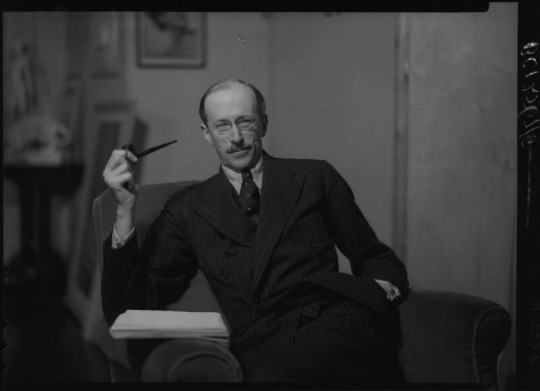
Liddell Hart believed that distilling historical insights of strategy and operations would offer the chance to avoid the costly disasters of modern war and ensure a more cost-effective route to success. He imagined technological solutions in the form of air power and mechanised land forces outflanking and shocking an enemy at the tactical level. This would be complemented by taking indirect strategic ‘ways’. Like his contemporary J.F.C. Fuller, Liddell Hart considered concentrations of air and armoured forces driving deep into enemy territory to destroy their ‘nervous system’. The psychological aspects of this were central, since acquiring an advantage demanded moves that were unexpected, with precise attacks at the most vulnerable points. As the most influential military writer of the modern age, revered and reviled by three generations of strategists, armchair and armipotent, his controversial theories of armed attack laid the foundation of the famed German Blitzkrieg.
Hart’s championing of Sun Tzu’s work as articulated through his own works got a new lease of life as the world gingerly settled into the ice bath of the Cold War. The rise of Communist China, against all the odds having defeated the well disciplined nationalist armies of Chian kai-Shek, was a wake up call for the West. There was a general befuddlement among western military analysts to explain the secret of Maoist success. There was an intellectual inquest in the 1950s and 1960s for some way to explain (and, it was hoped, learn to counter) Maoist military doctrine. Sun Tzu was seen as one of the historical and cultural sources of some particularly Chinese or Asian way of war, and his work made its way into Western discussions of counterinsurgency and asymmetric warfare.

Into the breach - and with fortuitous timing - appeared a new translation of The Art of War that was to become the defining translation right down to our day. Liddel Hart provided the foreword to Samuel Griffth’s 1963 translated copy of the Art of War. It was to quickly become a key text in US war colleges and this version is still to this day favoured by most of these institutions. We also studied Griffith’s translation at Sandhurst alongside Liddell Hart’s ideas.
There is no question that Griffith’s translation has become the standard go to translation to this day in military circles - that is until James Clavell’s more populist and looser translation came along in the 1980s. One can see why. Griffith’s translation provided a number of historical Chinese commentaries on the text. It should also be noted that Griffith’s strengths was his immense experience in the military and knowledge of military history as a brigadier general in the U.S. Marine Corps.
However, this was also his version's greatest flaw. Like many other critics I have the impression that Griffith did not really believe or understand all of Sun Tzu. Indeed he would often explain away Sun Tzu's direct statements without making it clear that this was his commentary and not what Sun Tzu wrote. The other main criticism and this one is stylistic and therefore just my opinion, Griffith was also not much of a writer. By our standards today, much of Griffith’s language can seem awkward and dated.
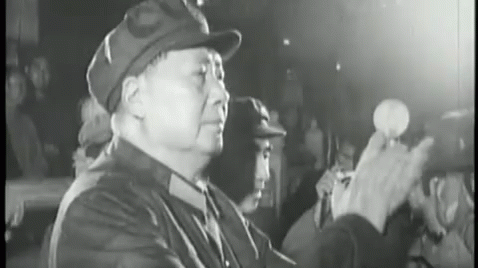
Looking back it feels ironic of the US military were wrapping their heads around Sun Tzu as way to get inside the Chinese communist mind (of Mao the military strategist especially). Unknown to them Mao had desperately tried everything to get hold of a copy of the Art of War from the Chinese Nationalists. Cambridge historian and doyenne of intelligence history, Christopher Andrew in his book The Secret World: A History of Intelligence, wrote that the theory that Sun Tzu’s The Art of War was critical to mastering contemporary warfare is propagated through the use of a tantalising anecdote: “During the civil war between Communists and the Kuomintang regime [Mao Zedong] sent aides into enemy territory to find a copy of it.” The ancient text, ostensibly, was of such vital importance that Mao was willing to risk men’s lives to obtain it, while Chiang Kai-shek vowed to protect it all costs. It’s a questionable anecdote at best as there are no historical evidence of it.

We can say that the notion that Sun Tzu’s slim treatise is considered both potent and slightly dangerous - providing the master key to unlocking victory in war through the ages - is a compelling myth that refuses to die. Mao most likely never ordered a clandestine operation to pilfer the text, nor did Chiang Kai-shek give any thought to shielding its contents from prying eyes. Both men certainly read it long before the start of their civil war, both most likely had ready access to it during the conflict, and neither man won or lost based on adherence or divergence from its teachings. But undoubtedly it set the hearts of Western military theorists aflutter in trying to unlock the secrets of Eastern military thought.
Sun Tzu and his ideas in a reincarnated form took hold of the wider public imagination in the 1980s. The 1980s was synonymous with Japan. With the perceived rise of Japan as a global economic power and the changes in post-Mao China, there was a Western (meaning American) search for more explanations. What was the secret of Asia’s rise? How were Japan and China ‘doing’ this?
In Western business circles it was for a time trendy to read it because of the perception that it was part of what made Japanese businesses so successful during the 70s and 80s. Management gurus and other corporate consultants certainly latched on to it and touted it as a way for Western businesses to re-orient their entire management and business philosophy. I don’t know if that ever actually was the case in Japan - my father who worked in both China and Japan in the corporate world at a very senior level said it wasn’t - but what is true is that in the West as the Japanese economy languished into the lost decade of the 90s so too did interest in Japanese business practices, and thus Sun Tzu.

The idea that The Art of War was a kind of how-to guide to ‘strategy’ was made especially popular by Hollywood in the 1980s. Oliver Stone’s iconic film ‘Wall Street’ seemed to typify the ‘greed is good’ New York capitalist scene of the 80s and 90s. Hollywood mirror imaged the rise of the corporate raiders and junk bond kings like Ivan Boesky and Michael Milken. Hollywood sent thousands of American businessmen off to read Sun Tzu to look for ‘leadership secrets’. This is part of a general Western fascination with ‘timeless Asian wisdom’, the American idea that ‘the mysterious East’ is possessed of secret knowledge. American and European businessmen were enamoured of the idea that “a battle is won or lost before it ever begins”, a saying that reinforced traditional American business attitudes about a winning mentality and a ‘can-do’ spirit being two keys to success.
Because Japan and China were trendy in the 1980s and 1990s it also influenced Western popular culture, not just fashion (think Kenzo) but also comic books (manga) and anime. In this Eastern friendly climate it led a number of popular fiction authors to release their ‘own’ versions of the work to capitalise on its newfound popularity. These versions were more about the pop culture of the era than Sun Tzu. Unfortunately, though popular, none of these versions took advantage of the work completed in Taiwan creating a definitive version of Sun Tzu's text by this time. These versions were based either on old English translations (the Calthorp and Giles versions) or incomplete Chinese sources. However, all of these versions remain popular today, despite their questionable sources and poor quality of translation.

In 1983, James Clavell updated The Art of War translation of Lionel Giles and published it in a very popular version. This started a very common practice in English translation: creating a ‘new’ version from other English translations instead of going back to the original source. Authors today continue to follow this practice, which only perpetuates and exaggerates the problems with early translations.
Thomas Cleary, another well-known author, did his own The Art of War translation with historical commentary in 1988. Again, his name recognition did much to increase awareness of Sun Tzu, even if his work did nothing to improve the general quality of the translation.
Looking back the whole Sun Tzu as a business model fetish in the 1980-90s was really pretty silly, rather like 80s shoulder pads. Of course, there are some similarities in leadership regardless of profession, but the basic goals and working environments of war and of business are so wildly different that applying Sun Tzu to business is superficial at best.
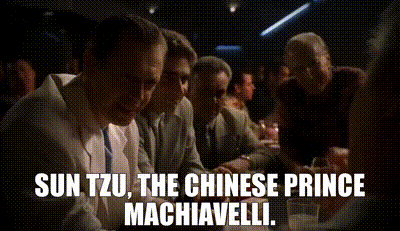
So to me the problem is not that Sun Tzu is ‘overrated’ per se, the problem is that every half baked author out there try to apply its principles to every problems that mankind have. The Art of War, as the title suggest, is not The Art of Managing your Business, the Art of Winning in Competition against your classmates, The Art of picking up Women, The Art of Living Life to the fullest. It is, and only is, The Art of War. It is ‘overrated’ only if you expect it to answer every problems in your life.
The Art of War is not the word of God. It is a war manual advocating common sense with pithy aphorisms - and a very good one.
It’s not that I think the Art of War is over-rated it’s that the more common problem is that many people vastly under-rate Sun Tzu. By misreading Sun Tzu thoughts and ideas, I believe many are in effect under-rating the problems which Sun Tzu is addressing, namely war, or the continuum of conflict resolution where divergence in interests of multiple parties extends to the possible use of lethal force on a massive scale. A lot of people trivialise this problem with idiocies like “what if someone threw a war and nobody came” (clue, they would win, then hunt down and enslave or kill everyone too foolish to contest the issue, as has happened countless times in human history) or “ban war” (said ban apparently enforced by throwing flowers at soldiers).
Understanding that war is a very real and intractable problem is necessary to fully appreciate the genius of Sun Tzu’s work, especially where it avoids fixed and easily definable tactics specific to the Warring States period and instead illustrates timeless concepts of out-thinking the enemy at every level of conflict. That the text is still mostly readily applicable or at least reasonably insightful after thousands of years is a testament to the inability of humans to push warfare beyond the fundamental aspects of conflicting interests and continuum of forcible resolution Sun Tzu addresses.

Still, the particular translation matters far less than having an appreciation that, in war, you have an active opponent who is trying to out-think and counter any moves you make, and having an appreciation of non-dualistic philosophical reasoning more characteristic of Chinese classics generally. The classic symbol of Yin-Yang (and a number of derivative versions) illustrates apparent dualism as being a part of a deeper structural unity which does not permit a fixed division into separate parts.
Hence the difficulty of applying the principles of the Art of War to artificial ideas of “winning/losing” (or war/peace, right/wrong, us/them) as categorical absolutes rather than negotiated possibilities in a continuum of desirability/costs. And it is very difficult, no one should sugar coat that. Humans sort and construct their perceptions of reality by appeal to such gross simplifications. Binary logic is an immensely powerful tool in many areas because it leverages the ability to simplify complexity and then build valid inferences based on fixed premises. But at some point you have to go beyond that to have a more fluid response to reality as it is. Which Sun Tzu does for the reality of war.
I would recommend anyone to read it. At the end of the day it’s a book of highly general aphorisms that effectively synopsise the essential insights that apply to all kinds of human conflicts. Turning an enemy's flank has the exact same effect in 2500 B.C. and in 2000 C.E. and it has the same effect in the boardroom, or public market as it does on the battlefield. Deception and intelligence are still used in exactly the same way, whether conquering foreign lands, or stealing market share from a competitor. It's a book about common sense; but common sense must seem profound to those who have none.
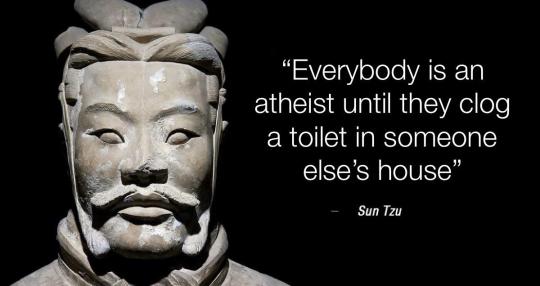
Overall, I think Sun Tzu’s Art of War is a worthy read and not overrated because in our society of over educated achievers, common sense is in as short of supply as it has ever been; if this book can provide the meaningful framework for educating very bright people in down to earth common sense, that can only be a good thing.
The value of the book then is to drive home the fact that, in human conflict, there really is Nothing New Under the Sun (Tzu).
Pardon the pun and thanks for your question.
#question#ask#sun tzu#military history#book#philosophy#china#culture#the art of war#war#military#warfare#strategy#society#literature#america#britain#japan
568 notes
·
View notes
Text
Dating Disney: Beauty and the Beast

Beauty and the Beast features my favorite love story and my favorite Disney Princess, so it holds a very special spot in my heart. So, it’s worth looking into the film to decide when the Movie is supposed to be set.
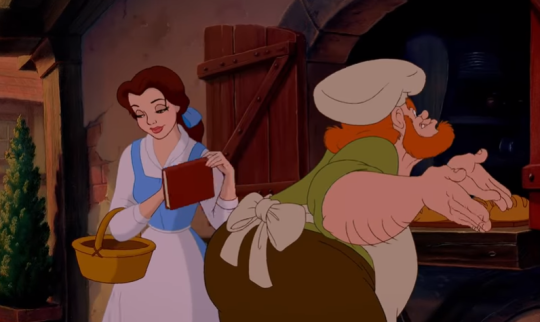
During the opening musical number “Belle”, Belle is telling the Baker about the book she’s been reading. She’s clearly describing Jack and the Beanstalk, the earliest version being the tale of “Jack Spriggins and the Enchanted Bean” in 1734. But she also deliberately mentions an ogre, not a giant. Near as I could find, the only version with an ogre was written by Joseph Jacobs in 1890, making Belle nearly contemporary to modernity. Belle’s excitement over the book is likely a sign that this is a new story.
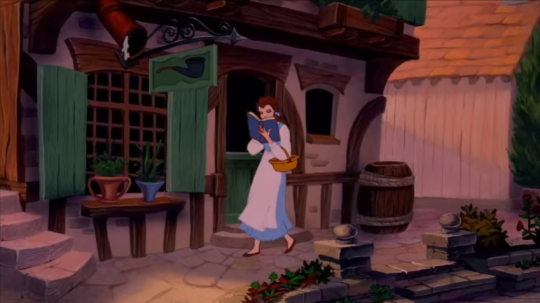
During the same musical number, we see a sign depicting a tobacco pipe, but unlike with the Calabash pipe from the Little Mermaid movie. I could place it to possibly be a Billiard type, but the exact era of creation escapes me. However, tobacco pipes have been around as long as Tobacco has been introduced to European trade, starting in the 16th century.
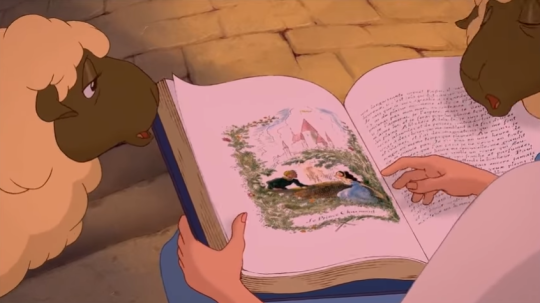
The history of colored printing goes as far back as the 16th century, and there are illustrations from the early 1700s with an impressive variety of color that help establish a stronger time period. The book also shows the words Le Prince Charmant or Prince Charming. Prince Charming started being used in 1697 in Charles Perrault’s version of Sleeping Beauty, although there, Prince Charming was not a name. Rather, Perrault stated that the Prince was charmed by her words. The first story to use Prince Charming as a name is the Tale of Pretty Goldilocks. It was written at some point in the 17th Century by Madame d’Aulnoy, but in her version the hero was named Avenant. It wasn’t until 1889 when Andrew Lang retold the story that Avenant was dubbed as Charming. One year later in 1890, Oscar Wilde used the term “Prince Charming” sarcastically in his novel “The Picture of Dorian Gray”, meaning that the term had gotten its more modern meaning by this point in time.
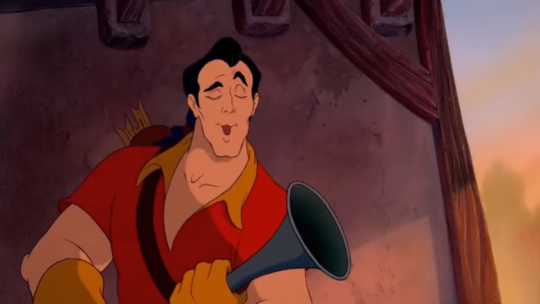
Gaston’s musket is a Blunderbuss, which was invented in the early 1600′s and remained popular through the 18th century before falling out of fashion in the middle of the 19th century. However, considering Belle states that this is a backwards town and Gaston is an old-fashioned, Primeval man, it’s possible he’s using a largely outdated weapon.

While there are no street lamps in the city, we can see in the background lanterns on the sides of buildings, which might allude to the movie taking place before the invention of gas lamps. However, gas lamps were invented in 1809, and if the version of Jack and the Beanstalk is from 1890, then by all accounts the town should have gas lamps. What this amounting evidence is leading me to believe is that the film is directly following the plot of the original fairy tale.

In the story, Beauty’s father is a merchant who loses his fortune due to a storm destroying his cargo. They’re forced to live on a farm until the merchant stumbles upon the Beast’s castle and kick starts the plot. In the opening song, Belle says “every morning’s just the same, since the morning that we came, to this poor, provincial town.” This could mean that she grew up in a much more modern, urban, and progressive town. Possibly even Paris. But that after Maurice suffered severe financial trouble, he was forced to move them to the small, backwards town that was practically living an entire century behind the rest of France, which is why she’s so bored and unimpressed by the little town. It helps explain why she’s so eager to want to get out of this town and see the world. She wants to be part of the modern world again.

Interestingly, I can support this theory with background information. According to some of my research, Belle’s village was based on the little town of Riquewihr, France, which still looks like it did in the 16th century to this day. So the idea that Belle’s little village lacks so many modern elements could be a nod to the architecture of this sleepy French village that has remained largely untouched by the march of time. Hence why it looks more like something out of the 1700s despite the many elements from the 1800s being present.

During the song “Be Our Guest”, Lumiere dances with a match stick. Match sticks were invented in 1805. Assuming the film still takes place in the 1890s, this would be concurrent with the other evidence we’ve seen thus far. Later in the same song, the silverware makes an Eiffel tower, which was constructed in 1889. Since Jack and the Beanstalk was written after that, it still fits within the suspected time frame.

During the climax of the battle, Cogsworth is wearing military garments reflective of Napoleonic styles. Napoleon was coronated in 1804 until 1814, had a brief return to power in 1815, and eventually died in 1821. So this is also congruent to the established time period.
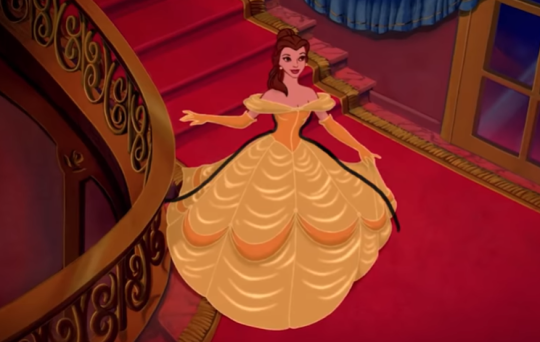
In the Youtube Video “Fashion Expert Fact Checks Belle from Beauty and the Beast’s Costumes” by Glamour, April Calahan, a Fashion Historian from the Fashion Institute of Technology directly noted that Belle’s yellow gown lacks the shape of a proper 18th century dress, and more closely resembles the shape of 19th century dresses, fitting into the evidence that’s been mounting in support of a late 19th century setting.
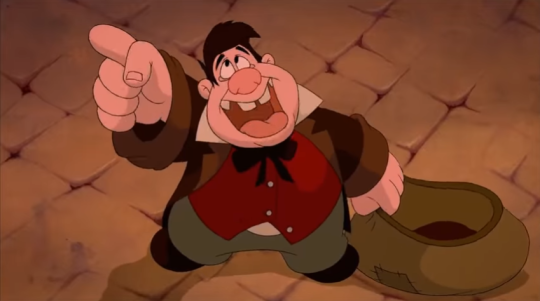
As a part of his primary costume, Lefou wears a waistcoat and tailcoats, which came into vogue in the 1800s, namely from the 1840s through the 1850s.

But if the film is set in the 1800s, how can the Beast still be a prince after the French Revolution? Well something worth noting is that when he finds out that Belle isn’t coming to dinner, the Beast storms through the halls to her room as Cogsworth calls after him as “Your Eminence” and “Your Grace”. The address of “Your Eminence” is reserved for Cardinals of the Roman Catholic Church, and is an ecclesiastical style of address. “Your Grace” is noticeably an English style of address, but it’s being used by Cogsworth who is British, so I can chalk that up to just part of his culture. Although it was used for British monarchs, it fell out of use during the reign of King Henry VIII (1509-1547) and after that, the use of “Your Grace” became used to address archbishops and non-royal Dukes and Duchesses. Now clearly the Beast is not a cardinal or a bishop, especially if he is looking for the love of a woman to make him human, since it’s forbidden for Catholic priests to marry. So clearly that is not what is meant here. But the other answer actually does hold a bit of weight. Beast’s father was in fact, a Duke. So how is the Beast a prince? He’s not. Not entirely. See, there’s more than one kind of Prince in French nobility. There’s a Prince du Sang, or a Prince by Blood. Effectively, the Crown Prince, the sons of ruling monarchs. But the title is also given to lords in charge of a Principality, one of the smallest territorial sizes. The Beast’s principality probably only extends to having power over the little unnamed village. And with it being after the revolution, Beast might not even have the proper use of his title anymore. He’s effectively a rich kid in a fancy house with no real authority or power. He’s just old money from a by-gone era of human history. But if Beast’s address of “Your Grace” is accurate, that would mean that he’s a non-royal Duke, meaning he would not likely have been executed during the Revolution, as his family would have essentially been governors or senators than actual monarchs. They just had jurisdiction over a small piece of the Kingdom of France and reported back to and obeyed the orders of their King. Thus, he would not have been important enough to be killed or chased out of power by the townsfolk.
CONCLUSION
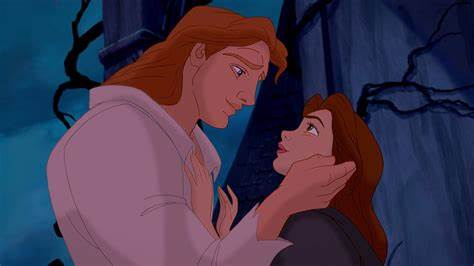
The movie is set between the late autumn and early-to-mid winter of 1890. Although the snow is gone when Belle returns to the village, the trees are still bare, signaling that it may just be unseasonably warm, though it could be the very early spring of 1891 between the receding of the snow and the blossoming of new spring foliage. Between the books, clothing, and references made, my conclusion is that Belle is a very modern girl living in a backwards little town stuck in the past, thus why a village in 1890 looks so completely lacking in modern technology despite the era. The Prince is nothing more than a fancy title as the son of a Duke, and he likely has very little if any actual government authority. Essentially, Belle married into wealth, not power, and will never be a proper queen, and I’m not sure if the wife of a lord ruling a principality is a princess or not, but I suspect the answer is no. Making Belle, like Mulan, a Disney Princess who did not marry royalty, was not born royalty, and thus, cannot be called a Disney Princess. She’s definitely a noblewoman, but she’s not royal by any means.
SETTING: Riquewihr, France
KINGDOM: The French Republic (France)
YEAR: Autumn, 1890 - Spring, 1891
PERIOD: The Third Republic (1870-1940)
LANGUAGE: French
#dating disney#disney#beauty and the beast#belle#beast#gaston#lumiere#cogsworth#mrs potts#chip#maurice#lefou#historically accurate#historically accurate disney#la belle et la bête#la belle et la bete#france#french#french history#19th century#fashion history#historical costumes#disney princess#tale as old as time#napoleon bonaparte#riquewihr
65K notes
·
View notes
Text
Fic Asks and Answers
Thanks for the tag, @highfunctioningflailgirl and @bbcfandomsuniverse!
How many works do you have on AO3?
58. I actually would’ve have guessed far less!
What’s your total AO3 word count?
*checks AO3 stats* 309, 099
How many fandoms have you written for and what are they?
Three: Cormoran Strike, The Musketeers, and War and Peace. Although the latter two are definitely my own spin on the characters, especially War and Peace. Might as well label that one Fedya Dolokhov fanfic, specifically. 😄
What are your top five fics by kudos?
Murder on the Venetian Express
The Boxer
The Course of True Love Never Did Run Smooth
Fifteen Days of Summer
Opposites Attract
Do you respond to comments, and why or why not?
I’m sporadic. I’d say I get around to it 80% of the time. 100% good intent, though.
What’s the fic you’ve written with the angstiest ending?
The Boxer, probably. It’s got a happy ending, but it’s bittersweet, too. I purposefully wanted to reflect a hard-won, real adult relationship with real problems (and solutions.)
Do you write crossovers?
I haven’t! I’m not opposed, but I haven’t met the right fic idea yet.
Have you ever received hate on a fic?
Not on the fic itself, although I did have somebody point out the inappropriateness of how I had categorized the fic. I didn’t reply; I’m a pick-your-battles kinda gal.
Do you write smut? If so, what kind?
I do. I used to be so nervous about it I could barely type the words, which makes me laugh now. I’m still picky about it, though, I can never write it without serving an emotional purpose, even when I have Dolokhov being his rogueish, devilish best. Not as picky about that when I read it. 😊
Have you ever had a fic stolen?
I don’t think so!
Have you ever had a fic translated?
Nope!
Have you ever co-written a fic before?
I have. I always thought it would be a process that might involve tiptoeing around feelings and kind of stayed away from it, but both times it’s been brilliant fun from start to finish. Murder on the Venetian Express with @lulacat3, and The Knight and the Wren with @fallingfaintlydown, both of whom were an absolute joy to work with.
What’s your all-time favourite ship?
Strike and Robin from Strike. Alex and Darlington from Ninth House. Is it still considered a ship once the couples have finally coupled up and achieved bliss? (we hope!) There’s a ton of fictional couples I was rooting for who’ve made it, I’m happy to say, so I no longer define them as actively being shipped. I’m way overthinking this.
What’s a WIP that you want to finish but don’t think you ever will?
Hmm! The Coat – I had notes written for the ending, but I lost the document (before I started using Google Docs and backing stuff up) and can’t remember what I originally wanted. I could still finish it, but I’m not inspired to.
What are your writing strengths?
Dialogue, and an understanding of character motivation. Editing for rhythm of language and tone.
What are your writing weaknesses?
Descriptive exposition. Impatience. Continuity.
What are your thoughts on writing dialogue in other languages in a fic?
Only if I know the language. I’ve done it before, in French, but limited, because the scene will be lost on the intended audience if it goes on forever. Implication and context are good things! I used Google Translate (which butchers everything) for Russian, and I’m sure Russian-speakers would be able to tear the sentence apart, but it worked for the panic of the character.
What was the first fandom you wrote for?
Strike. If I’m not counting Buffy, in high school, on pen and paper.
What’s your favourite fic you’ve written?
The Revolution of Fedya Dolokhov. It was personal for all kinds of reasons, it was magical, and it felt like lightning in a bottle. I re-read it at the end of last year and immediately spotted things I was itching to edit, but left it, b/c I have such affection for it.
16 notes
·
View notes
Text
Entry 4: Jardin (Garden)
For my first blog assignment, I decided to visit the Jardin des Tuileries. I was lucky enough to be able to visit this garden and appreciate its beauty on both May 18th and 20th! It is located in the 1st arrondissement of Paris between the Louvre and the Place de la Concorde, and contains two fountains/pools, an expanse of greenery, several sculptures, and unmatched views of the surrounding historical architecture. You can even sneak a peek of the top of the Eiffel Tower while sitting by the pools!

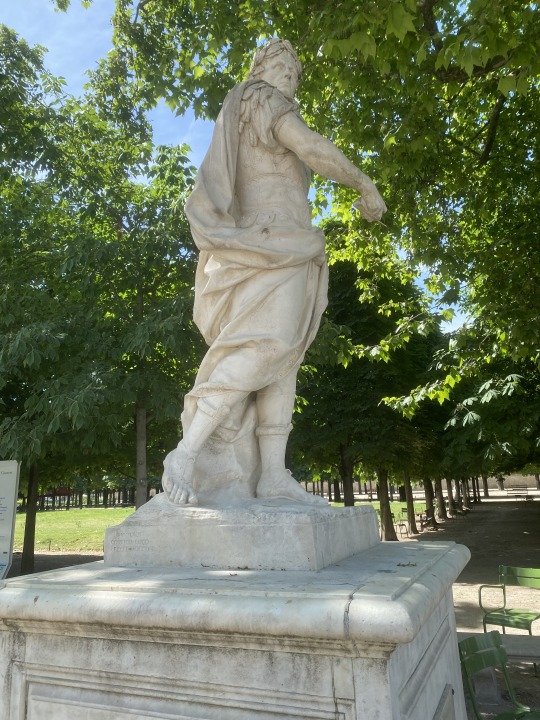

The garden was originally constructed in 1564 when Queen Catherine de Medici built the Tuileries Palace. She commissioned an Italian architect, Bernard de Carnesse, to build the garden as an Italian Renaissance garden. It was given its name because the area has been occupied by tile making factories since the 1200s, and tulie means tile in French. In 1664, under King Louis XIV, Colbert had the architect André le Nôtre redesign the garden to be a true French garden and to be viewed above from a terrace, replacing some of the garden with the pools and removing the central street. Originally, the garden was reserved only for the royal family, however during the French revolution when the royal family was housed at the Tuileries Palace, the garden was reserved for them in the morning , and the public in the afternoon. Nowadays, the garden is completely open to the public. My favorite part of the garden is the axial perspective that you get with several of the major Parisian historical monuments going right down the center, which is highlighted by Haussmann’s wide boulevard at the end. It’s so cool to be able to see the Louvre, Arc du Carrousel, the garden pools, the Luxor Obelisk, the Arc de Triomphe, and the Place de la Concorde all in one line!




Today, this garden has transformed from only serving royalty and nobility, to truly being a garden meant fo the public to enjoy. As we walked through the garden, I saw many a type of people out enjoying the weather and beauty of the parks. The garden was filed with school children playing, tourists of the Louvre, Parisians reading or sitting in the sun, couples spending time together, people exercising, people walking their pets, and people having a bite to eat. The garden includes several chairs and benches for people to be able to sit outside and enjoy it. Additionally, it includes a gelato and coffee/pasty/sandwich stand to cater even more to the public. There is even a little trampoline area and park set up for the smaller children!



Overall, I when I experienced this garden, I really loved it. I spent my time walking around and viewing the sculptures, reading my book, looking on at the surrounding Arc du Carrousel and Louvre, and doing the most Parisian activity- people watching! I even saw a goat eating the grass! The design of it being a very wide open space and looking on at so many historical landmarks contributes to it being a public space because it draws people in and makes them want to come enjoy it. Its wide open design also makes it feel like a break from the surrounding city. Visually, I loved how the greenery adds to the beauty of the city. I experienced it as a public space because so many different types of people out enjoying it, and sitting in the chairs by the pools people watching made me feel like a true Parisian.
2 notes
·
View notes
Note
♫FrUk :D
Thank you for the ask, I will send a few songs that remind me of fruk, a whole playlist if you may, not only one song. I also touch a few of triggering topics as I explain the nations's personalities and relationships with one another so I apologize in advance if I upset/trigger someone and will put my trigger here - Warning - mentions of abuse, alcoholism, s*exual trauma. Under the explanation there is a playlist of songs that make me think of Ukfr/Fruk, so if anyone gets upset you can feel free to skip my general headcanons about fruk/ukfr relationship dynamics. There are too many songs that make me think of different characters or ships but I collected the ones that make me think the most of them.
I know the original song is by Lady gaga but this version is too sweet and cheesy for me so I chose the rock cover by the group Halestorm since I prefer it, it sounds more genuine and rough and kinda makes me think of the dynamic that ukfr/fruk has, that some people present is as just the enemies to lovers trope or them just fighting which is.....simply unhealthy????? Fruk is much more than that and I wish people would stop seeing it as a two dimensional thing, yeah they do argue on a lot of things and it is not the healthiest dynamic however it does work in my mind because they stick through thin and thick and that requires effort and true love since a lot of people nowdays do not take time to know the other person, they just jump into marriage and have a few divorces and just argue over everything and then separate, fruk is an off and on thing where they break and make. This kind of dedication is hard to find in today's couples. I know they're fictional characters and no one really cares but I practice my psychology skills and my knowledge of people around me, and I sometimes see people with similar or almost the same characters as fictional characters, they may not have all of their hobbies but they do act the same way. And certain pairs, no offence, just make me want to gag my self due to history with bad and toxic fans but if I look at it subjectivly and never encountered mean fans from a certain ship, I would say that they ship simply doesn't work. No ship bashing but as far as I know, people with this kind of personality from this ship that I dislike, and get upset when seeing fan art of, simply just do not get along and had a hard time divorcing, it is not only unhealthy and unbalanced, it is downright abusive because both partners seek control and to have the upper hand and this is not...what romance is about???? It is about two people taking care of each other, understanding personal space and boundaries, lifting each other up and yeah, they will argue a lot, sometimes for small things, sometimes for bigger things, but generally the point of romantic relationships is not someone using you, or abusing you financially and generally being better or bigger than you. This breeds insecurity and jealousy in the other partner and makes them feel inadequate. Usually such problems are not talked over and one of the partners acts passive agressive which is what ultimaltly leads to said divorce. So yeah, people can go away with their (BUT IT IS CUTE, IT IS SO FUCKING CUTE) pairing because real life pairings and how humans communicate and develop friendships and relationships isn't based on what your mind conciders and doesn't concider cute and there are lots of factors on whether relationship will ever happen like common interests, type personality, etc and just block me so I will never hear from them and their childish mindset ever again, which is why I blocked certain tumbrl fan art hetalia accounts who produce art of a pairing I (dislike) lowkey hate, for historical reasons, for manga reasons, for toxic fans who bullied me and made me go on 3 hiatuses reason and ultimatly in real life experience and psychology and how humans and the human mind works and what is healthy and unhealthy reason. Why should I support something where certain people have been hateful towards me and these same people that act like these characters and I know in my life are on bad terms in real life? Why shouldn't I just move on to something more realistic and more healthy, that I have seen that works with humans I know first hand? I am not a clinical psychologist and I have no power or saying in this but I had to write thesis and read books by psycholgists and analyze them in high school and my first year of Uni, in order to pass the year and I have also read reccomended books by a psychologist I went to because I wanted an advice on how to deal with my anxiety and talking to people, because my condition is extremely severe but I honestly feel stuck and try to improve but also feel confused, I sometimes feel like I am not doing enough to
self improve as a human. I sometimes come off as too cold or overly bitter and angry without intending to, and it sucks.
Francis is a really manipulative person and Matthew picked up that from him while part of Alfred's agression doesn't only come from confidence in his own abilities but the fact that England him self is an overly agressive person and is very dominant or at least used to be for a very long time, now he is more mild to keep his gentleman persona but he does suffer from severe anger issues which he hides while Alfred is prone to breaking things and screaming, Arthur is more prone to being rude, sarcastic and generally mean before he loses it. Matthew and Francis do not engage in fight if they can avoid it which is why sometimes people call them cowardly I think? And Matthew is a bit prone to being a codependent people pleaser as far as I see and he seems to have severe anxiety issues. Francis albeit charismatic and beautiful, is deep down in his core lonely.
I think that part of his pervertedness, shocking people with his s*xual humour and all of this sex obsession comes from trauma in his childhood and dressing like a girl. I wouldn't explain what the trauma in question was since it is not canon but I do headcanon that he had s*xual trauma and it is partly why Hungary dressed like a guy. I don't know if this is legit, it is bias from reading too much japanese fan comics relating to hetalia or just general history of humans and how they treated consent and what is moral today, wasn't amoral or against the law a few centuries ago, but I have seen artists touch on it. I think both Arthur and Francis suffer from neglect and they weren't particularly good fathers, in fact no country is, the whole FACE family is dysfunctional and while I love all of them, I kinda pity them. I think Rome was a bit discriminatory mostly towards France and never towards his other children while Arthur had to constantly prove him self and was bullied by his brothers. While other nations have suffered from trauma too (I headcanon that Prussia was burnt on stake and people threw rocks at him due to his albinism and being left handed) something similar happened to Arthur, who I headcanon that he was burnt for being a witch and Francis went a few times through the guillotine, or Arthur still having a bullet scar on his arm from the American revolution or Francis having nightmares from that day where Jeanne was burnt and waking up in his own sweat. Arthur also must suffer from workholism and alcoholism, judging by how much he works and goes to pubs to drink. Everyone chooses their own poison and how to cope with life and many use unhealthy coping mechanisms, hell, even I used unhealthy coping mechanisms a lot in the past and I am not proud of them, in fact, I try to improve.
I can talk about their history and how it relates to their mental health and what scars they have for hours but I would bore you. You came for a song and I am probably boring you so I apologize for writting a lot of words, in advance. I basically think that fruk/ukfr is the ultimate ship for many reasons because they click, I do ship spuk/engita/asakiku and many other things but fruk/ukfr is kinda like butter and bread, it is a great combination. I never said it is 100 percent healthy, however their relationship makes psychological sense and their personalities click. I know people like to present arthur as this dumb tsundere man that blushes and says baka, or he is this garbage rat dad that no one likes or francis is presented or at least used to be this perverted sex machine that touched other countries inappropriatly or at least the 2012-2015 fans saw him this way and while he still has the reputation of a pervert, what many young people in the fandom see as disgusting, I just see as an overly lonely man that just happens to have high libido and copes with it by having casual sex and just has a sex humour, the same way some people have fart jokes humour or darker, more cursed humour, I am really glad that fans mostly left off this whole - Francis is a r**ist and will grope you, in the past, because honestly r**e is not joke and as a character he clearly understands consent and boundaries and I don't think someone like him would do such a thing. Also Greece and Turkey have even higher libido than him and sleep around more, yet he is the ''pervert'', I don't get it??????????? but fruk is just so much more than opposites attract, they have a lot in common so I can't say they're full opposites, no one is truly. I have heard people ask why does anyone ship fruk when it is just opposites attract/enemies to lovers trope and I am honestly confused, because that is extremely rough generalization to say the least, it is like saying - All men/women are the same, it is simply wrong/uncorrect. I think they ''married'' five times - The Treaty of Paris (1657) formed an alliance against Spain. The Anglo-French Alliance (1716–31) formed another alliance against Spain. The Anglo-French blockade of the Río de la Plata (1845-1850). The Anglo-French joint invasion of Qing Dynasty (1856–1860). And the last one which is their official marriage The Entente Cordiale (1904) fought together in both World Wars. As far as I remember Francis tried to marry Arthur but he refused and why he refused is up for subjective opinion but I must write a whole thesis on why Fruk/ukfr works so well and people are not here for that, they're here for the music and I will provide. I also always saw Francis as the more gentle and more submissive partner, I just love to see him drawn in frilly beautiful dresses with bows and stuff and Arthur as the more dominant, I mean as a country he was a powerhouse during the 1600s-1800s and used to be a punkrocker, usually rockers are mentally tough and that man is extremely cunning and witty so...people drawing him as this useless baka uwu overly feminine anorexic boy that looks more like a tween rather than a 23 year old guy just assasinated his character in my opinion and it disturbs me but I am just some awkward human on the internet and no one values my opinion anyway because this is the internet and many people nowdays love to have hot takes and try to gain followers through clickbait stuff which sometimes goes out of control and everything just seems more fake and shallow to me, the more old I get.Okay that was my silly rant no one asked about but I feel really passionate about hetalia and Fruk/Ukfr. Anyway, I apologize again for my long rant and going all over the place, please enjoy this playlist
PLAYLIST WITH SONGS THAT REMIND ME OF FRUK/UKFR
1 - Halestorm - Bad romance - rock cover https://www.youtube.com/watch?v=Ll4NJs3NBIU
2 - Queen - Somebody to love - lyrics https://www.youtube.com/watch?v=zj69iA_goIk
3 - ABBA - Voulez vous - (I know everyone chooses Waterloo and while waterloo is a fruk theme, I think Voulez vous works too) https://www.youtube.com/watch?v=fwcgMVXuBJc
4 - London beat - I've been thinking about you - https://www.youtube.com/watch?v=ixBryyQSrD8
5 - Santana - Smooth - https://www.youtube.com/watch?v=6Whgn_iE5uc
6 - George Michael - Careless whisper - https://www.youtube.com/watch?v=izGwDsrQ1eQ
7 - Robbie Williams - Feel - https://www.youtube.com/watch?v=iy4mXZN1Zzk
8 - Michael Buble - Feeling good - https://www.youtube.com/watch?v=Edwsf-8F3sI
9 - Edith Piaf - La vie en rose - https://www.youtube.com/watch?v=kFzViYkZAz4
10 - Chopin - Marriage d'amour (Spring waltz) - https://www.youtube.com/watch?v=EFJ7kDva7JE
11 - Vanessa Carlton - A thousand miles - https://www.youtube.com/watch?v=ERw2LuU6Jj8
#fruk#ukfr#hetalia fruk#playlist#reminds me of fruk#hetalia axis powers#hetalia world stars#trigger#trigger warning#mentions of abuse#rant#vent#fiore rosewood vents#axis powers hetalia#hetalia headcanons#personal headcanon#fiore rosewood headcanons#hetalia world twinkle#aph hetalia#hetalia 2021#hws#aph#personal problems#psychology#fans#social anxiety#A lot of thoughts#head not empty#overthinking#ranting
18 notes
·
View notes
Photo



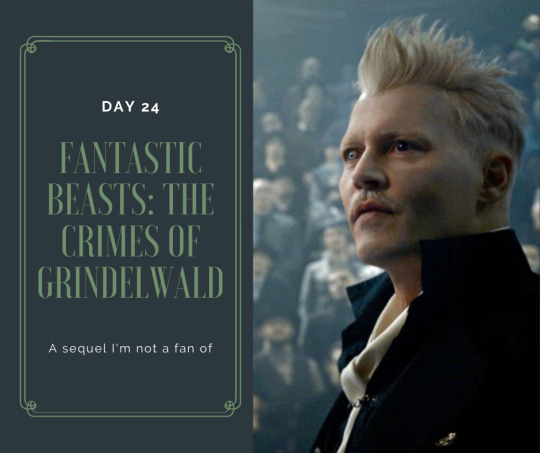



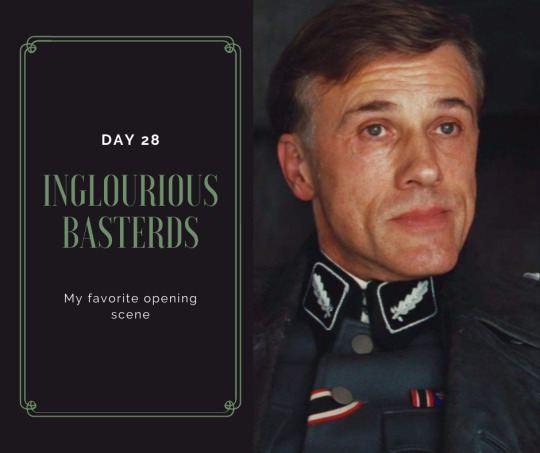

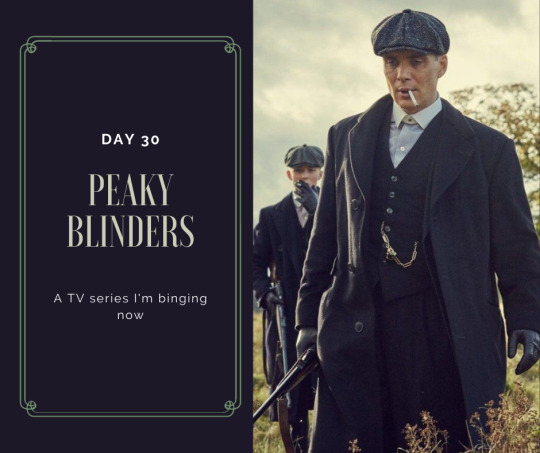
30-Day Movie Challenge here. Part 3/3. Part 1. Part 2.
21. My favorite actor: Eddie Redmayne
I had a minor crush on Eddie Redmayne in Les Miserables and totally fell in love after The Danish Girl. He was also the main reason why Fantastic Beasts was so great.
I absolutely adore his acting, he's really versatile as an actor and he deserves to be less type casted into nerds or effeminate guys (see also: The Trials of Chicago Seven)
Honorable mentions: (I've mentioned him too much not to include) Rupert Graves, Hugh Grant, Danny Pudi.
22. A director I think is a total genius: Quentin Tarantino
I really aspire to be a writer half as good as him :<
The story never fails to get the whole point across, the dialogues are the definition of show-don't-tell. He might be controversial but his talents are not for discussion.
My favorite films of his: Inglourious Basterds (2009), Pulp Fiction (1994), and Django Unchained (2012)
23. My favorite female lead movie: Promising Young Woman (2020)
I really don't have enough words to describe how much I love this movie. I've written about it before, so there you go.
24. A sequel I'm not a fan of: The Crimes of Grindelwald (2018)
"Not a fan of" is a gross understatement. This movie makes my blood boil.
I came to watch Harry Potter at 20, old enough not to be blown away by the wizarding world, and was kinda fed up with the "chosen boy" narrative. So when Fantastic Beasts came out and it was all about the magical creatures and their shenanigans, featuring a kind-hearted introvert, I was thrilled. I absolutely loved Fantastic Beasts and was waiting for the second movie in metaphorical agony. I was in actual agony after I watched The Crimes of Grindelwald. Not only was it about something totally different and no longer in the "fantastic beasts" realm, it was also the worst story ever told in the medium of film.
They are making a third one and oh boy JK Rowling is gonna talk about WWII.
25. My favorite local director: (Probably) Victor Vu
I don't watch a lot of Vietnamese films. I've only ever been blown away by the countryside as portrayed in Victor Vu's Tôi thấy hoa vàng trên cỏ xanh (Yellow flowers on the green grass), so there's that.
26. A movie I find hopeful: Paddington 2
It is the cutest film I've ever watched, with a lot of good messages that even adults can learn from. Paddington 2 also features Hugh Grant as a washed up actor and a bad guy, and he embraced the jokes on himself so much it was absolutely fun to watch!
"If we are kind and polite, the world will be right."
27. A film I know by heart: Hannah Gadsby's Douglas (2020)
I cheated a bit, this is not a movie but a stand-up special. But I have watched it so many times now I remember every word, and the jokes are still super funny even at the 1000th watch xD
28. My favorite opening scene: Inglourious Basterds (2009)
I think there are thousands of people agree with me on this one: This is probably the best opening scene one can see on film.
Opening scene is to set the tone of the film and introduce major characters, and Tarantino did it in the best way possible! This Youtuber says it better than me.
29. A film that was based on a book and was executed well: Làng Vũ Đại ngày ấy (Vu Dai Village) (1980)
Nothing ever beats this classic for the position of the best creative storytelling adapted from literature. It respects all aspects of the original works, and creates a world where struggles are intertwined and empathized with. Not to mention, perfect casting too.
For my international friends: The movie is based on the short stories of the famous Vietnamese author Van Cao: Chi Pheo (name), Lao Hac (Name) and Song Mon (Rotten Life - grossly translated), all about the struggles of Vietnamese people before our great revolution against the French colonials in 1945. Though the original works were written separately, the movie combined all of them and made one Vietnamese classic literature cinematic universe, still relevant to this day.
30. A TV series I'm binging now: Peaky Blinders (2013 - 2022)
Not binging, just watching in a moderate pace.
This is one of the rare series/movies I didn't watch for the actors/directors/topics I cared about. I was just drawn to it by the style. I'm surprised to see I'm not jumping in any actor's fandom because of this series but just enjoying the story for itself.
The style is amazing. Really masculine and hyper macho but touching in a lot of ways. The soundtrack is awesome too!
#30 day movie challenge#eddie redmayne#promising young woman#inglourious basterds#peaky blinders#hannah gadsby#quentin tarantino#paddington 2#the crimes of grindelwald#fantastic beasts
18 notes
·
View notes
Text
Blabbing about this Musician!au I started last summer that has now also turned into a marching band!au because I got sad and nostalgic because despite how shitty it could be, marching band defined my high school life and social life and I couldn’t had asked for anything else.
I also don’t have every single prequel character (because this au is surrounding the prequel characters) in Star Wars smacked into here, and I gave up halfway through a couple of months ago in terms of brainstorming. Anyways, this is hella long so check everything out under the line if you’d like! don’t want to spam everyone with something that’s like, 4 pages long
Now, you might be asking. What instruments are these characters playing, or what are they doing in marching band? well, boy oh boy do I have some lore for you.
Anakin Skywalker: alright lets start of with the “Chosen One”. Now, I gotta say. He’s got some intense brass vibes, specifically high brass. But I don’t know. He didn’t really mesh well. And given his natural talent with the Force in canon, I thought that Anakin would be a sort of prodigy. And we all know the two instruments associated with that: the piano and violin. He’s more of a piano dude, so here we go! piano prodigy Anakin Skywalker. He also gives mad drumline vibes, and I can see him as either the lead snare, setting the tempo, or the main quad player. He’s brash, slightly obnoxious, but damn is he fucking good at what he does.
Obi-Wan Kenobi: I literally started this AU on the idea that Obi-Wan would play the cello. One of the defining quotes for him is that fucking “infinite sadness” quote. And we all know that cellos play some of the saddest pieces out there. (see: Elgar cello concerto) However, I can’t see him as a marching band dude. He doesn’t really give off color guard vibes (since that’s where most non-band people go to) so I have him as the resident student helper who everyone tolerates because he brings ice cream after band camp.
Ahsoka Tano: Ahsoka is a flute player. As a flute player, I have intimate knowledge on this. She’s like the chill flute player who’s competitive enough to keep her position as principal, but is also chill enough to not have a big ego that butts heads with everyone. She also gives mad color guard vibes. Also speaking about that from personal experience (am I lowkey projecting my own experiences on her? you didn’t hear that from me). She seems like the type to love swing flags and sabre, and is 100% captain by senior year.
I have Anakin, Obi-Wan, and Ahsoka as siblings in this AU because I say so. Qui-Gon is around here somewhere as the resident hippie dad who lowkey smokes pot and will support his children while giving a big ‘fuck you’ to Dooku.
Yoda’s also in here somewhere, and I love the idea that he’s an old Chinese/Asian man who refuses to speak english and will only do so with the most backwards grammar so his grandchild (Qui-Gon) and great-grandchildren (the trio) are forced to speak Mandarin/Cantonese to him (pick your poison). He just spends his days cutting up fruit and also might pull out his erhu if everyone asks nice enough. (I want to say he was a Peking Opera musician, but immigrated during Mao’s reign after he lost opportunities during the cultural revolution)
So, I know that it doesn’t make sense for a family to have 3 sets of twins and one triplet set, but fuck that I do what I want.
Cody Fett: okay so, Cody 100% plays the french horn. I don’t know, he just, he does. He’s got that air of sophistication because he can play the hardest brass instrument, but at the same time, he’s incredibly good at it and is matter-of-fact about it. He also would be the mello section leader (I was playing with the idea of drum major, but for now, leaving him as a section leader for now). He’s a bit uptight to be a low brass player, but cool enough to still be associated with the general brass group.
Rex Fett: I got Rex and Cody as the eldest Fett twins. Rex feels like a string player, so I have him on violin. I can see him be very hardworking and practicing diligently to the point where he easily sweeps through to concertmaster in high school and the local youth orchestra. He also gives of mad drum major vibes. I can see him copying music, handing out drill charts, and hauling the met around. Also, just think about Rex doing a fancy ass salute at competitions. Yes.
Next round of twins lets gooo
Jesse Fett: You could say Jesse has brass vibes. I see him as a reed person though. In concert band, he’s on clarinet. I used to think clarinets were as stuck up as us flutes but no they’re literally balls of chaotic energy ready to be unleashed. Just imagine Jesse blaming everything on his reed. I see him as the guy who switches to saxophone for marching band, though. He’s got the energy of the clarinet and the saxophone harnessed. Also, wouldn’t be surprised if he knows how to play the sousa.
Kix Fett: Y’know, when I originally made this AU, I had Kix as a musician as well. I’m gonna scratch that. He’s going to medical school, or at least, he’s planning to. He’s on the pre-med track and is dying in organic chemistry and wishes there weren’t so many pre-requisites. However, in high school, he definitely played the oboe. Of course Kix chose one of the hardest instruments to play. Also, just imagine him trying to make his own reeds. I don’t see him as a guy who’s in marching band. He’ll come to competitions and maybe football games if he’s bullied into it. Kix is the guy who’s classes are all AP and he’s dying inside.
Next round of twins yeet:
Fives Fett: shit, I forgot I gave them all real names. If I remember correctly, Fives is Frank. Anyways, trumpet vibes. Need I say more? He’s on the trumpet in marching band as well and he’s the dude who’s obsessed with DCI and always tries to play as high as he possibly can and absolutely demolishes his chops. I would say he’s section leader as well. He also hangs with the drumline at the back of the bus and always plays meme songs on blast and sends weird pictures to people’s phone via open airdrop.
Echo Fett: I think his birth name is Ethan??? I’m spitting thoughts not checking my old documents. Anyways. Echo feels like a string person. Specifically, low strings. So, he plays the bass. Upright bass. Whatever. You get what I mean. He sleeps in the case after school and hates hauling it everywhere. He was in marching band as a mello player (the easiest brass instrument to pick up for the activity so) but he was in a car crash that left him paralyzed from the hip down, and had to quit to recover. He never stopped playing, and found ways to adjust. (I do not know how exactly this would work, since I’m able bodied and also don’t play the bass, but I know he’d at least have a stool to sit on in order to lean his body on. let me know if you have other ideas i’d love to hear them!)
Finally, we got the triplets:
Dogma Fett: Dogma plays the bassoon. He’s a low reed kinda guy and between the bari sax, bass clarinet, and bassoon, he fits the last one the best. He and Kix moan over making reeds and he’s on the quieter side. He just vibes and plays all the low notes and has fun whenever he’s got some moving part. I see Dogma as someone who is only casually into marching band. He uses Jesse’s old student clarinet as his instrument and he’s always on time, knows his sets, and his technique is on point. He always finds himself roped into his brothers’ shenanigans though.
Tup Fett: Tup plays the harp. I like to think he met Shaak Ti (we’ll get to her in a bit) when he was young, and she was playing with an orchestra. He met her backstage and she offered to give him lessons. Tup’s not really a part of high school orchestra but sometimes he’ll be brought in. He’s more involved with solo work and the youth orchestra more than anything. Tup’s another on where I don’t think he’d be into marching band. Though I can see him being in winter guard as the dude who just shows up and is lowkey rip and therefore is a hunk on the rifle. His technique’s good but they’ve never been able to saddle him into fall guard.
Hardcase Fett: (i’ve given up on remembering the birth names so i’m just gonna not) Hardcase is 100% low brass vibes. He can’t be anything but a low brass. I see him as a tuba player. He’s chill, laid back, but also reliable for being the foundation of the band sound. He plays the sousaphone in marching band and always blasts either Seven Nation Army or some other popular show tune right after rehearsals. Hardcase also can play the bari sax and no one knows when he learned how to.
OKAY we’re done with the Fett’s! Jango and Boba are in here somewhere but honestly I don’t have enough brainpower to come up with what their roles are. Jango’s gonna be a good dad though. Maybe he was a musician and that’s why most of his kids are going into music. Or maybe he’s just a supportive father. Boba’s the youngest though, that’s for sure. And he’s a little shit. Don’t know if he plays an instrument (probably) or what it might be.
Now lets get into some other characters! There’s a lot. And I wasn’t even halfway done with the characters I wanted to include. What the hell was I on last summer?
Padmé Amidala: Padmé is a flute player who quit after freshman year of high school and started taking music production and music theory classes. She loved it so much that she decided that composing was her jam. Now, she’s highly successful and often works with well known pianist, Anakin Skywalker, on piano concertos. Also, she may or may not be dating said pianists but you didn’t hear that from me.
Satine Kryze: twosetters don’t shit on me but Satine feels like she’d play the viola. She and Obi-Obi-Wan definitely dated in high school but after a year broke up on mutual terms and are just good friends now. A lot of people feel like she’d have been a better political science/international studies major than a music major but she’s good so no one complains (until she gets into a fighting match with someone and wins smugly)
Bo-Katan Kryze: shes Satine’s younger sister and is a mad athlete. She doesn’t play any instruments but she’s deeply active and is on scholarship for college, on the pre-med track with Kix. She’s very scary and most people are too intimidated by her to approach.
Plo Koon: I originally had him as an asian man, but I can see Native American as well. He plays the euphonium and he’s just a sweet man. He helps out a lot with private lessons at local high schools and is often brought in to help with low brass during marching band.
Wolffe Koon: Wolffe and Gregor (get to him in a bit) were both adopted by Plo when their parents died when they were very young. Plo was their godfather and he took them in like they were his own. They’re cousins to the Fett brothers (though don’t ask me how I have no idea). Wolffe is an engineer and works close to home.
Gregor Koon: Gregor is Wolffe’s younger brother and had a short stint of musical interest in middle school but quit after he entered high school. Gregor was in a serious car crash during college that left him amnesiac for a year before some of his memories returned. He now owns a restaurant and sticks close to home. Wolffe often comes around to check up on him because his brain injury still impacts his current life in small physical and emotional dips
Kit Fisto: Kit gives off mad trombone vibes and it’s mostly because he seems incredibly laid back. He’s one of those brass players who’s just a nice guy and while jokes around, never got pulled into jokes as a student.
Shaak Ti: like I said above, Shaak Ti is most definitely a harpist. She has that ethereal quality I think is common in harpists. She’s a tall Indian woman and she loves her job! She’s a private lesson teacher and instructor at the conservatory on top of her job in the orchestra since she’s not called in often to play. She loves all her students and gives good hugs.
Mace Windu: Mace is the director of the Jedi Symphony, the orchestra which almost everyone is involved with. He is a bass player and he likes his more classical pieces over contemporary music. He’s good friends with Yoda and sometimes the old troll has to wack some sense into Windu and have him take on newer pieces. Windu 100% gives off unhinged director vibes because mistakes and lazy musicians definitely don’t end after high school/college is over.
Quinlan Vos: this lil shithead definitely is the obnoxious, slightly arrogant, but kind of deserving of that, percussionist. He loves his snare drum and is also in the drumline. He’s the same age as Obi-Wan and the two are close friends. Quinlan is definitely slightly unhinged and is always at the back of the bus causing havoc after competitions. He’s the guy that I (OP) hate but also can’t help but respect cuz yeah he’s annoying but at least he’s good.
Aayla Secura: Aayla is Quinn’s half-sister, and plays the French horn. Again, like Cody, she’s got this air of professionalism that I associate with French horn players and like, we gotta represent the girls in brass somehow. She just fits it really nicely.
I feel like now is the time to list who’s still in conservatory and who isn’t: Obi-Wan, Anakin, Rex, Cody, Jesse, Quinlan, Padmé, and Satine are all recent graduates. Ahsoka, Aayla, Fives, Echo, Tup, Dogma, and Hardcase are still in conservatory (at varying years of course). Kix and Bo are entering med school/frantically applying and banging their heads cuz MCATs. Wolffe and Gregor are older and have been in the field for quite some time now. Plo, Kit, Shaak, and Mace are all faculty/seasoned professionals.
Somehow, I was gonna bring in The Skiratas (with proper research cuz I know very little about them), Dooku, Ventress, the Oppress siblings, rest of Domino Squad, Cut Lawquene, the other CCs, and more. I designated a page out of my sketchbook for this and my oh my the flow chart was hella confusing. How I thought I was gonna handle that in the summer before my first year of college, I have no idea. Maybe I’ll brainstorm more in the future but for now, this is all I have :]]]
Also excuse some of my slightly unhinged language I started writing this a few days ago while slightly unfocused and tired and stressed so my language is a product of that
#star wars#meta#musician au#my thoughts#I miss marching band so fucking much#I miss DCI#and WGI#miss the community#even if it was pretty stressful at times cuz drama#people love their drama in band#I don’t blame them you get sick of people after band camp#star wars au
24 notes
·
View notes
Text
Vampr Erik Origin
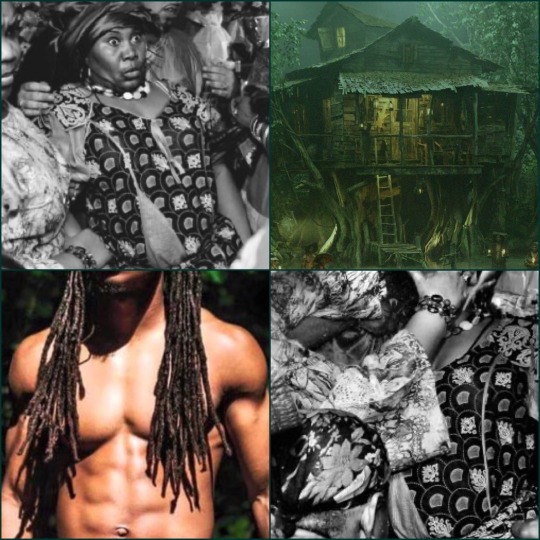
Okay so let me make a disclaimer:
I had to do a lot of research to try and create his back story in summary form. I basically learned a lot of shit that I didn’t know so with that being said, you guys can feel free to fact check me because I feel like this needs to be factual as far as the history of it goes. Also, Erik was born/reborn in an era that is very touchy. I mean, we go through crap as black people everyday but I used some very degrading words to represent how it was back in this time. If this is offensive, please feel free to let me know I will change it. I don’t want to offend or make anyone feel bad. So, here it is! This is the origin I came up with.

Erik Stevens is his alias but he was born Ricardo Dupoux. Erik was born in 1856 in New Orleans, Louisiana. Just 29 years before he became a vampire.
Erik’s mother was born in 1836. Her name was Fabiola Adonis and she is from Louisiana but her parents and family (Erik’s grandparents) are from Sainte-Dominigue which is now known as Haiti.
Erik’s father was named Jacques Dupoux. He was born in 1827 in Cuba and he migrated to Louisiana with his family when he was just four years old.
Both sides of Erik’s family originated in Sainte-Dominigue and began to migrate out during the black Haitian Revolution as free people of color. The Haitian Revolution was a successful insurrection by self-liberated slaves against French colonial rule in Saint-Domingue, now the sovereign state of Haiti. The revolt began on 22 August 1791, and ended in 1804 with the former colony's independence. It involved blacks, mulattoes, French, Spanish, and British participants—with the ex-slave Toussaint Louverture emerging as Haiti's most charismatic hero. The revolution was the only slave uprising that led to the founding of a state which was both free from slavery, and ruled by non-whites and former captives. It is now widely seen as a defining moment in the history of the Atlantic World.
Haitian Vodou, is an Afro-American religion that developed in Afro-Haitian communities amid the Atlantic slave trade between the 16th and 19th centuries. It arose through a process of syncretism between the traditional religions of West Africa and the Roman Catholic form of Christianity. Vodou is an oral tradition practiced by extended families that inherit familial spirits, along with the necessary devotional practices, from their elders. In the cities, local hierarchies of priestesses or priests (manbo and oungan), “children of the spirits” (ounsi), and ritual drummers (ountògi) comprise more formal “societies” or “congregations” (sosyete). In these congregations, knowledge is passed on through a ritual of initiation (kanzo) in which the body becomes the site of spiritual transformation. Many Vodou practitioners were involved in the Haitian Revolution which overthrew the French colonial government, abolished slavery, and formed modern Haiti. The Roman Catholic Church left for several decades following the Revolution, allowing Vodou to become Haiti's dominant religion. They referred to themselves as “serving the spirits” more so than using Voudou to refer to Haitian religion.
Jacques Doupoux and Fabiola Adonis were well respected within the Vodou community. Erik’s father was a hounsi bosale and Artisan. Hounsi is essentially a dedicated member of Vodou, an apprentice of priests. His mother, Fabiola, an Ounsi, oversaw the liturgical singing and shaking the chacha rattle which is used to control the rhythm during ceremonies. She had a voice that used to lull Erik to sleep. Jacques wanted Erik to follow in his footsteps and later become an oungan; a Vodou priest. He was born as a “child of the house” or a pititt-caye. Being an oungan provides an individual with both social status and material profit. Erik was present for his father's initiation when he was just a baby with his mother in a shared Ounfò; Vodou temple. There were four levels of initiation that Jacques Doupoux went through. That sealed Erik’s future.
The Ounfò was a basic shack in Bayou St. John. The main ceremonial space within the Ounfò is known as the peristil. brightly painted posts hold up the roof, which is often made of corrugated iron but sometimes thatched. The central one of these posts is the poto mitan or poteau mitan, which is used as a pivot during ritual dances and serves as the "passage of the spirits" by which the Loa; the spirits, enter the room during ceremonies. It is around this central post that offerings, including both vèvè and animal sacrifices, are made.
Free people of color owned the most property in Louisiana but of course, that didn’t go down in history because the whites didn’t like it. As for Erik’s family, his mother and father were free people of color that became sugar planters, for slave owners, and they also shared Haitian refining techniques to successfully granulate sugar. Erik favors his father more so than his mother, sometimes confused as his father’s younger brother.
The Colfax massacre and the Coushatta massacre happened in 1873. This sparked fear for Erik’s family and they held a certain Fete for Lwa which is a public ceremony. The drums beat, the congregation started to sing and dance for the Lwa. The Lwa came to the ceremony via possession. The Lwa prophesied, healed people, cleansed people, and blessed them and assisted them in resolving issues. Erik was 17 years old and he didn’t share this with his parents but he was running for his life from a group of white Southerners one day when he was walking the bayou of New Orleans. Erik ended up sleeping in Baton Rouge until the morning.
Erik often stays within the Ounfò, well into adult age. He became a hounsi bosale like his father, often participating as a ritual drummer or an ountògi. He would sing specific songs in Haitian Creole with some words of African languages incorporated in it. He was a Food Artisan like his mother. He admired her craftsmanship in the kitchen. Cheeses, breads, fruit preserves, cured meats, beverages, oils, and vinegars were some of her handmade specialties. This is one thing that attracted women to Erik besides his handsome features. He was Strong, tall, studly, rough around the edges and not afraid to challenge someone to a fight or a gun battle. Erik was charming, protective, heroic, funny, cocky which earned him the nickname “Big Ego Ricardo”. Erik was hard-working, religious, smart, sculpted, dependable, and an amazing lover in bed.
Long dreadlocks, whiskey-colored eyes, full, soft lips, and a smile with dimples so deep it charmed anyone. He wore fundamental ivory cotton band collar work shirts unbuttoned to show off his defined pectorals because he was proud of his body, sometimes paired the shirts with a vest, cotton brown or black knickers, riding boots, and a series of Vodou jewelry around his neck and on his fingers, some with symbols representing Papa Legba, La Sirene, Ogoun King, and Baron Samedi. During Vodou rituals, Erik would wear a cotton cloth around his head like a bandana, bare torso because of the amount of sweating he does during drumming to keep up with the dancers, Vodou symbols painted on his face to represent whichever Loa they were serving, white linen pants and bare feet.
He was obsessed with guns. He would often go down to the bayou to practice with stolen pocket pistols, shooting empty glass bottles and bean cans. He’s a protector, he did this just in case his family were in danger. The symbol of Vodou love on one of his ring fingers is what attracted his late wife, Justine LeBlanc to him when he was 27 years old. He was selling artisan bread one afternoon from an open shop window on Bourbon Street. Justine was six years younger than Erik. She was a Creole of color from Louisiana, like Erik, except her family were sent to Louisiana on slave ships from sub-Saharan Africa instead of Haiti like Erik’s family. She spoke a bit of English, and French with words from African languages. Erik spoke English and Haitian Creole with a little bit of Portuguese and Spanish.
Justine LeBlanc worked closely with Marie Laveau, who was rumored to be the granddaughter of a powerful priestess in Sainte-Dominigue, who began to dominate New Orleans Vodou that later became Louisiana Voodoo. These spiritual leaders served a racially diverse, mostly female, congregation. Weekly worship services took place in the homes of Voodoo leaders. Their sanctuaries were characterized by spectacular altars, laden with statues and pictures of the saints, candles, flowers, fruit, and other offerings. Voodoo ceremonies consisted of Roman Catholic prayers, chanting, drumming, and dancing. Vodou was brought of Haitian origin, however, the type practiced in Louisiana later in years is almost always known as Voodoo.
Erik was known to be a ladies man. He spent time flirting and fucking woman within his community. Pussy was practically thrown at him. Justine, however, changed all of that. They spent so much time together within one summer that Erik decided that he wanted to jump the broom with her which was symbolic of sweeping out of the old and sweeping in to the new to welcome a new household to the community. Justine lost her virginity to him the evening after their marriage and that’s when they started having children. Erik has two young twin girls; Rose Fabiola Dupoux and Felicie Ines Dupoux. After that, Justine couldn’t conceive anymore which she was often depressed about. Erik wanted to be fruitful because his mother came down very ill when he was five and she couldn’t conceive either. It was either her life or her ovaries so she had them removed.
Despite everything going on in America with slavery and racism, Erik; Ricardo, lived a happy life. He was feared and respected, a following of close male friends were like his comrades. They had his back, Erik had theirs. That all didn’t last very long. In June of 1884, when Erik was just 28 years old, things began to make a turn for the worst. Erik’s father, Jacques Dupoux, was lynched. With the 1880s dawning, a new era of violence ensued. White supremacy represented a central tenant of their platform and led to even greater levels of violence as they tried to reverse the advances made for African Americans during Reconstruction. They capitalized on rumors that black crime had expanded after the abolition of slavery. As a result, the number of lynchings soared across the South and hundreds of lives were being taken. Lynch mobs often justified their actions as attempts to defend white Southern womanhood from “libidinous” black males.
This angered Erik, causing him to gather a following of men who also lost family. Erik led the revolt to fight back white supremacy. They attached about 15 homes and killed between 55 to 60 whites throughout Louisiana. They also arrived on a local sugar and cotton plantation that often sought help from Erik’s own family for harvesting sugar cane. The revolt and about 20 slaves burned the plantation to the ground but that wasn’t before they hacked the entire family to death. Erik was made public enemy number one. His face was on wanted posters throughout the South but he was depicted wearing a scarf around his mouth and nose. Of course with Erik’s actions, some of his family and friends suffered. Vodou rituals were invaded and the members slaughtered. Marie Leveau and her following were protected but not Erik’s lineage.
Ricardo Dupoux AKA Erik Stevens returned home after successfully burning down another plantation and killing the entire family, including the children, execution style in 1886. Marie Laveau warned Justine that Erik was dangerous and he would endanger her and the children if she stayed with them. Marie instructed Justine to bring her something that belonged to Erik, something sentimental. Justine brought her Erik’s father’s ring that he wore around his neck. Marie performed a ritual that later informed Justine that Erik was in grave danger and this life as Ricardo Dupoux would soon come to a bloody, gory, gruesome ending. Marie told Justine that she couldn’t interfere because that could possibly go badly. Justine had to keep that big secret to herself to protect her children no matter how much she loved and adored Erik.
Erik wasn’t himself anymore. He became this angry, rude, vengeful man that killed without a backwards glance. He also turned to what is said to be evil magic in Vodou. Instead of becoming an Oungan, Erik became a Bokor and an occultist. A Bokor is a Vodou witch for hire who is said to serve the loa “with both hands”, practicing for both good and evil. Their black magic includes the creation of zombies and the creation of ‘ouangas’ talismans that house spirits. Bloods are usually chosen from birth but Erik was instead initiated in. He found the spirits, the orisha’s the Eruziles, not a priest in the flesh. The whites kept crossing the line in a spiritual and physical sense, it became Erik’s right to protect himself and his family with curses and hexes.
Erik caused moderate to severe suffering to those he seeked revenge on by hexing them and also using dark charms such as curses, the most heinous act on an individual; the worst kind of dark magic. He performed blood maledictions, a specific type of curse that may not kill the target but can remain within the victim's body, and be passed down as a genetic defect that can resurface generations later. Erik would inflict intense, excruciating pain on his victims, poison them, and cause flames called Move Dife which means “bad fire”, an enormous flame infused with dark magic to seek out living targets. Fabiola and Justine were afraid and they didn’t support Erik’s new choices. The light she saw in her son was indeed gone. He was of greatest fear within his community and within the Southern white community.
How did Erik meet his demise?
It happened in June of 1888, five months before Erik’s 33rd birthday. The White league and the Ku Klux Klan had been deactivated since the 1870s but some members worked closely together to hunt down and kill Ricardo Dupoux, soon to be known as Erik Stevens. He decided to use Erik Stevens as an alias since his name was so well known in Louisiana where he lived. No one besides the people close to him knew how his face looked since he wore it covered but his name however was remembered. If things didn’t go as planned for him and he needed to flee with his Mother, Wife, and children, he could have his name changed to Erik Stevens. A trusted friend named Augusto Richard’s wife named Beatrice Richard and her five children were held at gunpoint in their home. They found out where Augusto lives and used that as they way of finding Ricardo.
From what they tell him, Augusto’s family will be freed if he agrees to help the Southern white men capture and kill Ricardo Dupoux. At first, Augusto declined and said that Ricardo is a trusted friend of his. They punished him by beating his wife and threatened to hang her from a structure similar to a gallow. Augusto finally gives in, joining forces with the evil white men in exchange for his family's protection. Ricardo and Augusto have been friends since they were children. Augusto was sort of a co-planner with Ricardo to attack white supremacy and racists homes along with plantations. Augusto fabricated a new place to attack, suggesting that him and Ricardo go alone this time. Ricardo agreed without hesitation because he trusted Augusto. They arrived by horse outside of New Orleans near Maurepas Swamp……..
_______________
“Augusto...poukisa nou is it la?” Ricardo asked Augusto in Haitian Creole why they were there. He didn’t like speaking English just in case he was overheard. Ricardo’s eyes squinted suspiciously around him before he cut his eyes that looked black in the dark at Augusto.
“Mwen regrèt, frè,” Augusto spoke with a shaky voice, tears flooding his eyes. He told Ricardo that he was sorry.
Ricardo pulls out his pistol, aiming it at the shadows of the trees. He couldn’t believe he was being set up by someone that is supposed to be his friend. Ricardo told his wife and mother that he would be home safely and for them not to worry. He couldn’t trust anyone now. If he got out of this alive, he was going to cut ties with his followers.
“Well, well, well...look what we got here, a nigger with a gun!!”
Ricardo follows the source of that thick southern accent echoing in the night and finds a white man standing behind him with a gun pointed at his temple.
“Drop it, boy, or I will splatter this here swamp with ya monkey brains,” He threatened while making his gun click. Ricardo could see out of his peripheral more white men stepping out of the shadows. The moon light made the weapons in their hands shine.
“Listen to him nigger!!!” One yelled.
“AIN'T SO TOUGH NOW!!!” Another yelled while a series of laughter came soon after.
“Listen, I know ya can speak English, boy. Ya friend here told us everything. How ya niggers get a hold of books I wouldn’t understand,” He laughs before spitting in his face, “I’m gonna enjoy killing ya, just like ya enjoyed killing my friends ya fucking animal. This is how we’re gonna celebrate the ending of slavery...we’re gonna gut ya, and then we’re gonna throw ya filthy dead fucking body in the swamp so the gators can finish ya.”
The foul breath of this white man would have made Ricardo puke if it wasn’t for the gun pointed at him.
“Hey, Jenson, pass me my knife!” He yells, “I wanna Kill this one slowly.”
Like a swarm of stinky flies, the white men crowded Ricardo, some kicking him in his ribs, others in his face, bloodying him up. Ricardo didn’t drop to his knees willingly, he took each and every blow like a champion, even when his vision blurred from the blood trickling from a gash in his head from being pistol whipped. Augusto stood watching the entire thing. He was Disgusted with himself for allowing it to happen.
“Should we kill his wife? His mama? His little girls?!!!!” One of them punched him in the face while two men on each side kept him still since he’s so damn strong. It was almost inhumanly strong.
“AUGUSTO OU FUKIN TRÈT!!!” Ricardo yelled, before spitting out blood on the dirt covered ground. He called Augusto a fucking traitor, “Mwen gen yon fanmi! ti bebe mwen yo! ti bebe mwen yo! ou trèt!” Ricardo growled angrily with his deep fearful voice. He could only think about his family right now. What if some of these men were watching his house right now? They definitely were plotting something besides beating the living shit out of him in the swap.
“Kick this nigger down!!! It’s six of you and one of him!!!!”
A blow struck Ricardo’s spine so hard he felt it snap. He was on his stomach, his cheek hitting the dirt painfully. One foot was placed to the back of his head while angry tears fell from his eyes.
“Any last words? And say it in English before I slice your goddamn tongue off,” The man with the boot to his head spoke harshly.
Ricardo clenched his jaw while breathing in the dirt. He didn’t want to give them the satisfaction, however, the asshole in him wanted to toy with them.
“...Which one of ya is da father of Helen Landry?” He asks.
It was silent for a second until the boot on the back of his head was gone, being replaced with a hand yanking him by his dreads, lifting his head from the ground. Ricardo smiles smugly, his bloody smile almost as sinister as the blood from the gash in his head flooding his eyes.
“Let me ax ya something...are ya the reason my little Helen is dying? Doctor says she only has three days left...ya poison my little girl with ya voodoo magic?”
“I CURSED ya little girl with my Vodou magic…” Ricardo spits his blood in his face, “And if I were ya, I would go check on her, Doctors don’t always tell da truth.”
Augusto flinched when he witnessed Ricardo being kicked in the face. His jaw had to be broken now. He was being lifted off of the ground again, a sharp whimper of pain escaping his mouth. His feet gave out beneath him and now he was being dragged. His chest and abs were covered in dirt just like his handsome, swollen, and bloody face. His busted lip drooped and leaked blood while his groggy voice tried to form sentences. The men laughed at him but all Ricardo did was look at Augusto with unblinking eyes, one of which displayed broken vessels.
“Anything else ya got to say, nigger?”
The source of the voice didn’t matter to Ricardo. All he kept thinking about was his family and how he failed them. His father was probably ashamed. Ricardo looked towards the sky. If only he could call on Baron Samedi or Maman Brigette. He wasn’t in the safety of his Ounfò either. He could only hope that at this moment his mother, Fabiola, was summoning the spirits.
“Guess not, hold him down.”
With a dull, jagged knife, Ricardo was stabbed in his stomach. He felt like he was punched. The impact pushed him back a little and he wheezed. A tearing sensation and a noise followed. The pain took a while to kick but he could feel the blood trickling. When it was finally withdrawn, he felt something hot and cold at the same time, pulling the skin with it as it's removed. Ricardo’s cry was a brilliant sound to them, guttural chokes mixed with an agonized roar. His fists clenched and shook each time his skin was being torn to shreds. The knife rotated and the sound of his muscles and nerves being gouged growing louder. Then, without warning, the white man jerked it all the way into his stomach, until the shiny metal had disappeared inside him and the black handle was pushing against his broken skin.
“Die Coon!!!” They yelled in unison before celebrating with loud hoots.
“Look at him choking! This ugly motherfucker is bleeding out! Let’s take him to the water!”
Ricardo could feel his body falling to the ground. His hand clutched his wound but blood seeped between his fingers. He felt weak, his eyes opening and closing. Augusto stood there spewing apology after apology while crying hysterically.
“As for ya,” the white man that stabbed Ricardo multiple times drops his knife in the dirt, reaches in his back pocket with his bloody, cut up hand and pulled out a gun, “what? Did ya really think we were gonna let ya go free? Ya just another disgusting nigger too, and ya nigger bitch, ya nigger kids? Dem dead too.”
Ricardo watched with low eyes while Augusto took his last breath before being shot in the head, point blank range.
“Wastin’ all dese good bullets,” the white man pocketed his gun again, “Hall em’ up! Let’s take em’ swimming!”
_____________
Crowded tabletops with tiny flickering lamps; stones sitting in oil baths; a crucifix; murky bottles of roots and herbs steeped in alcohol; shiny new bottles of rum, scotch, gin, perfume, and almond-sugar syrup. On one side was an altar arranged in three steps and covered in gold and black contact paper. On the top step an open pack of filterless Pall Malls lay next to a cracked and dusty candle in the shape of a skull. A walking stick with its head carved to depict a huge erect penis leaned against the wall beside it. On the opposite side of the room was a small cabinet, its top littered with vials of powders and herbs. On the ceiling and walls of the room were baskets, bunches of leaves hung to dry, and smoke-darkened lithographs.
This is where Ricardo Dupoux rested upon a makeshift bed surrounded by oil burning candles. A sulfurous rotten-egg smell that is often associated with marshes and mudflats occupies the room. His entire body ached and the sharp pain prickled his scalp. Licking his dry lips with his equally dry tongue, Ricardo tried looking around with his sore eyes but the discomfort caused him to close them. It felt damp and gloomy around him, clearly nothing is quite what it seems to be. Ricardo could feel a powerful energy surrounding him, if only he could move his body. A few rickety floorboards creaked like someone was sneaking up on him and it made Ricardo jumpy. He wasn’t physically able to help himself.
“Ricardo Dupoux, ki sa yon sipriz bèl eh?”
A seductive voice of a woman spoke to him in Haitian Creole. This wasn’t a pleasant surprise exactly.
“Kiyes ou ye?” His voice was so hoarse and his throat felt raw.
“Who muh? Well...I’m yuh rescuer of course, handsome.”
“Kisa...ki kote sa a?” Ricardo coughs painfully. He could taste blood in the back of his throat.
“Well, don’t Yuh sound sexy speaking deh Creole to Mama Dalma. Yuh in muh shack, Ricardo.”
“Mama Dalma? Prètès Vodou a?” He spoke with astonishment.
“So, muh assumin’ yuh heard stories about muh from way back when...what else do yuh know bout’ me?”
“...Nothing.” He finally speaks English.
“Yuh know so much about muh voodoo mystic powers in the Caribbean 175 years ago…I’m honored.”
Finally, standing above his shell of a body was Tia Dalma herself. Tia Dalma was a practitioner of voodoo, a hoodoo priestess with fathomless powers that was perceived as a legend. Supposedly, she has uncanny powers to foretell the future, to summon up demons, and to look deep into men’s souls. She’s mysterious and beautiful with delicate patterns accentuating her hypnotic eyes, long but slender dreadlocks like him, deep melanin skin so smooth and unblemished, and lips painted black. She wore a sheer black dress that showed off her nudity beneath it, so many curves that looked delicious, and a mystical necklace dangling between her small breasts. Ricardo could feel her seductive energy enticing him into a tangled net. She playfully giggles while stroking Ricardo’s bare, sweaty chest with her long black nail flirtatiously.
“Poor baby, him carve yuh up?” She spoke with her Jamaican Patois. Mama Dalma looks Ricardo up and down like she wanted to mount him. She was so happy she couldn’t hide her beautiful smile.
“Did ya heal me, Mama Dalma? I thought I was gon’ die by a white man’s hand.”
“I’ve seen yuh fight big brawla, I’ve seen yuh cap a shot, I’m impressed wit’ yuh...haven’t seen a man deh brave in a while...queng dem white boys.”
“...ya been watching me?” He squints his whiskey colored eyes,“who ya for ya to be watching me?”
“Mhm, I been watching yuh, handsome...It’s because I want to save yuh...give yuh a better life than this.”
Ricardo was shivering, his skin pale and cool, difficulty breathing, mentally confused, and his blood pressure kept dropping. His chest was rapidly moving from breathing too fast, heart rate beating so fast it was almost painful, and he felt like he was running a fever.
“Easy nuh, yuh going into septic shock.” She takes her hand to pet his dreaded hair like a baby with the back of her hand.
“W-what?” His lips trembled. He was numb.
“Awoah. Muh herbes are keeping yuh stable but if I take deh herbes away...yuh die.”
Ricardo closes his eyes.
“Unless...yuh have two options, handsome.”
“One’s that I should trust? How do I know ya not poisoning me? Hm?”
“I’m gonna ignore deh...here are yuh options. Yuh can stay here on muh table and die slowly...or I can give yuh immortality.”
“Imòtalite? Baron Samedi?” He almost choked on his own spit from trying to speak.
“Better than the power of a Loa...yuh be immortal until meeting deh true death. Yuh have superhuman physical abilities, senses, flight, and healing.”
“What power is dat?” Ricardo’s eyes are glossy. He didn’t have much time. Mama Dalma was cunning, she could have healed him with her voodoo but what’s better? Healing him with the possibility of him dying again or turning him into what she became 175 years ago back in her little shack in a tree in Cuba, hanging onto her last breath. Ricardo was perfect in every way and she wanted to walk the earth with someone close to her...someone attractive and strong.
“Yuh ain’t got much time...make a decision, Ricardo Dupoux,” Tia strokes his face, “It could all be yours…”
Ricardo’s eyelids fluttered before he nodded his head. Anything to stay alive. Anything to get revenge. If he was going to come back stronger and immortal, he could wipe out every single one of them. He needed to get off of that table. Mama Dalma was convincing. Maybe it was her magic that persuaded him but none of that mattered.
“I’m glad Yuh agreed.”
Sharp, fangs extended from her teeth while she looked at him excitedly with hungry eyes. She came down on Ricardo with superhuman speed like a blur, causing his eyes to grow wide with surprise. It was almost painless, more like a pinprick considering how his body felt at the moment. The sharp points sank into his flesh like a knife to soft butter. His body twitched as his blood pooled around the back of his head, dripping to the floor of the shack and seeping between the wood. He started feeling even more woozy and lightheaded. She was really applying pressure with her fangs. He could feel his body going cold and then it felt as if his soul had left his body. Ricardo didn’t know how long this went on but it felt like forever.
Mama Dalma retracts her fangs, lifting her face from the crook of his neck slowly before staring down at Ricardo with her enchanting eyes. Her fangs pop out again and now she bites her own wrist before placing it over Ricardo’s mouth. He hesitated at first but Mama Dalma opened his mouth for him. Ricardo tasted his own blood before from his busted lip or if his gums were bleeding. He even tasted blood during a sacrifice at a Vodou ritual. It was vile with a salty metallic taste. However, Mama Dalma’s blood was surprisingly sweet, and scrumptious. Just that small amount dripping on his tongue gave him the effects of alcohol consumption.
“Deh is enough, Ricardo,” She tells him, “Ricardo...deh is enough.” She says with a more stern voice.
Ricardo wraps his hand around her wrist, applying pressure to keep it there. He could feel his body changing for the better already. Her blood...he couldn’t stop. He grunted, growled, and moaned from the taste. His tongue swiped her wrist and his own teeth tried to bite her for more but he was still so weak.
“Ricardo, deh is ENOUGH, no more!!!!!”
Mama Dalma yanked her wrist away speedily, her eyes staring down at her wound healing before her. She gave Ricardo a cold look, one that has him wishing he would have listened.
“When I tell yuh to stop, yuh listen,” She spoke with a spiteful tongue.
“It was so good,” Ricardo spoke with a weakened voice, “I want m-more.”
“Soon, muh child…” Mama Dalma kisses his lips, “Now we go to rest,” Mama Dalma wraps her arms around Ricardo and then with her superhuman speed they were out of her shack and laying in a dug up ditch. The soil was cold against Ricardo’s back. Mama Dalma places him in a wooden coffin, the moonlight creating a halo around her. His eyes drooped shut and he could feel his body shutting down like his organs were no longer working. Mama Dalma crawled into the coffin with him, resting her head on his chest and wrapping a single leg around his waist.
“When yuh wake, muh child, yuh will be Erik Stevens now...Ricardo Douboux died tonight.”
Mama Dalma kissed his cold cheek before she shut the coffin so they could finally rest until tomorrow night when Erik Stevens will finally be immortal.
239 notes
·
View notes
Text
Brickclub 2.2.3 ‘How the chain on the shackles must have undergone preparatory treatment to be shattered like that with one whack of the hammer’
Okay.
I know all the cool people like digressions. I did get into Waterloo this time around--it was really great having company to read it with. I feel like I finally started to make sense of it.
But this chapter. This Chapter. We haven’t reached the plot and already we’re digressing from it. We’ve done so much digressing, how is there more digressing.
I give up. I’m defeated. I have no more symbolism in me.
Here are our digressions, I’m just going to describe them, and then I’m going to move on.
First, there’s a longish discussion of French interference in the Spanish Civil War and how it’s an affront to France and freedom, motivated by the interest of the kings and the banks. The fact that it went all right for the kings and the banks, Hugo says, is an illusion--the Bourbons would pay for that ignoble war in the people’s esteem. It does make sense in our continuum of greater and lesser wars to include a shitty, stupid war against people’s freedom.
And then we digress into the lives of ships, and the Orion is near the end of hers. Hugo paints a miraculous picture of the genius of ship creation and all the massiveness of them and the elements that need to be balanced and the craftsmanship and vast amount of materials needed. It’s another contradiction, another meeting of opposites, and that’s always important. And it sounds like the biggest thing imaginable, and then he zooms all the way out and we see how small and fragile it is next to the infinite.
Hugo brings up its immense strength ending in immense weakness, which is the same thing he said about armies a moment ago. His point with armies is that their defiance (strength) comes from the obedience (weakness) of the men in them. And the people don’t share that weakness of automatic passive obedience (that phrase again!), and the kings don’t realize it. (It’s interesting to note--neither do soldiers. When revolutions are won in this era it’s because soldiers switched sides and joined the people. Which Hugo knows perfectly well.)
These are all definitely metaphors for things. Definitely definitely. Please someone else come up with what they’re metaphors for, I can’t with this chapter.
Moving on to people.
This is a type of chapter title we see a few times, that draws attention to a seemingly minor point that otherwise might go unnoticed. Valjean wasn’t saved by providential intervention this time, or at least not merely by that. He was biding his time and preparing for an opportunity to flee.
And that’s kind of all we ever learn about his second stint in the bagne. We never see his interior life with regards to it, which is a startling, deliberate omission. Later, we’ll see how glimpsing the convict wagons at a distance messes him up for days. But here? Nothing.
But we can infer things from that weakened chain about how he’s combined the convicts’ toolkit with the saint’s. He’s patient now, and he saves lives as a matter of course, and he’s strong and fearless in doing what he needs to do. He has neither the blind impulsiveness of his original convict self nor the propriety that bound Madeleine. He’s something new, and it’s basically unstoppable by any external force.
The man at the end of the rope is another man overboard. But this time, someone comes for him. That will be Valjean’s role in other people’s lives for the rest of the novel: a kind of merciful spider, sinister-looking and life-saving.
In giving up being a great man and becoming a good one, he seems to have given up any form of community. He never finds a way to have both.
There’s something ghostly about Valjean from here on out. He’s come back from the dead so many times that he’s never really of the world again. When Cosette offers him a life with her at the end, he won’t or can’t stay.
I still think of him as defined by that road from Montreuil to Arras, isolated, on a quest of his own, catching glimpses of other people’s lives, but no longer able to stay longer than it will take to complete his task.
19 notes
·
View notes
Text
70s Anime Retrospective
i've watched about 26 different anime released in the 70s. At its best there were a few TV series that I stuck with for the enjoyment I got out of them. At its worst it was dropped after 1-2 episodes or after 30 minutes of a movie. There was a developed trend that formed thanks to the popularity of a few series and the rest attempted to follow suite, causing 70s anime as a whole to get a bit monotonous and difficult to get through.
The Lists
Completed
By nature of having been completed, anime in this list represents my personal top 10 of everything I watched in the 70s.
Everything will be ordered from most enjoyed to least enjoyed
Lupin III: The Castle of Cagliostro
Tomorrow's Joe (Movie)
Future Boy Conan
Rose of Versailles
Lupin III
Aim for the Ace!
Galaxy Express 999
Space Pirate Captain Harlock
Lupin III: Lupin vs. Fukusei-ningen
Space Battleship Yamato Series & Movie
Lupin III: The Castle of Cagliostro
Miyazaki's first feature film as director!
Beautiful animation & proper Lupin depictions. A great place to start for anyone interested in getting into Lupin III. A classic.
Tomorrow's Joe (Movie)
Thanks to the movie being a condensed version of the TV series, I was able to get passed the notorious prison arc. It's pretty clear within the first few story beats that Joe is a bit of a rascal. The prison arc really exaggerates that character trait to cartoonish levels that will leave you scratching your head. I imagine the manga gets through this arc a lot faster than 20 minutes of "showcase the least amount of original source material" episodes.
Besides that, this is some great storytelling. Many different characters with different motives, priorities, philosophies, and ideas clashing together. An exploration of different types of rivalries through Joe and his different opponents.
Themes of doing your best, handling death, acting for yourself vs acting for other people, doing something out of pure enjoyment rather than for money, full devotion to a craft, and more.
Recognized as one of the top 10 greatest stories of all time in Japan and has influenced many, many stories to come. A favorite amongst the working class and political revolutionaries of the time.
This goes down as one of my favorites of all time. Highly recommend starting with the movie or skipping every other episode through the prison arc.
Future Boy Conan
Cool! Miyazaki makes a TV series! Hands down the best TV series of the 70s. This is mostly credited to the more modern episode count of 26 episodes (roughly equivalent to 2 seasons of anime today). Every episode is impactful and doesn't feel like a waste of time.
The story is a classic anime template of this era.. sci-fi, post nuclear apocalypse, and a fascist/totalitarian/anti-environmentalist group vs. freedom/tree-huggers. Very similar to Nausicaa of the Valley of the Wind.... which makes sense since Miyazaki started writing the manga in 1982 (4 years after directing Conan).
As with pretty much everything Miyazaki has been involved in, the focus is interpersonal relationships and believable characters.
An enjoyable watch.
Rose of Versailles
An neat historical fiction story set during the moments before and the beginning of the French revolution. Gives me slight Legend of the Galactic Heroes vibes with how many characters there are. Sometimes gets hard to follow, but for the most part it's entertaining and considered a classic.
It also has the first bisexual & gender nonconforming icon with Oscar. A woman in the French military during the 1700's?? How does she do it?? Watch it to find out!
Lupin III
What's interesting about this series is that it rated incredibly poorly in japan on release. Apparently it was slightly darker and felt a little too 'realistic' to japanese audiences. The initial director, Masaaki Osumi, was fired for refusing to adapt the source material to appeal to a broader (ie. children's audience). Miyazaki and Isao Takahata were brought in as replacements and eventually the show was cancelled.
Because of this director swap, there is some controversy over which interpretation of Lupin characters is the "correct" one. For me personally, I find the Miyazaki's version more entertaining and enjoyable. There wasn't enough substance to the dark themes to really warrant their use. There's not much to being edgy just to be edgy.
This is absolutely not a TV series you need to watch every episode of, but it's similar to Future Boy Conan in that it has a much lower episode count thanks to its cancellation. You could also skip this entirely and start from Part II.
Aim for the Ace!
This is one of the most popular sports stories of all time and is still ranked within the top 50 best anime productions of all time on many japanese anime/manga polls over the years since it's inception.
This story is responsible for a tennis boom in the 1970s, became the template for many other characters in shoujo anime. The clumsy wallflower with hidden potential, the popular narcissist, and handsome coach with a tragic fate. Sound familiar?
Aim for the Ace has been re-interpreted so many times it became a cliché. One of Gainax's first works, Gunbuster - Aim for the Top!, is a sci-fi/mech parody of the story and one of my favorite works of all time.
This truly is a classic story and a treat to experience. (manga might be better.. up to you)
Galaxy Express 999 (film)
Winning the Japanese Academy Award for most popular film in 1980, Galaxy Express 999 has a unique story from the rest. A 10-year-old's journey to get what he thinks he needs and accompanied by a mysterious woman.
A fun watch! Can feel a little long, but overall an enjoyable experience.
Space Pirate Captain Harlock
Earth's government got you down? Tired of your incompetent government leaders wasting their time watching horse racing? Do you wish something could be done to stop the aliens from invading? Then join Captain Harlock and his merry band of "pirates" and do the work yourself!
This is yet another influential story created by the same people that made Galaxy Express 999. Robots with human souls, stoic & badass space captain with a cape, and a kid that just wants to go home to mommy only to realize fighting for what's right is better, and more can all be found here.
~50 or so episodes and can feel pretty long at times. Takes a lot of inspiration from Space Battleship Yamato with its own variations.
Not a super necessary watch, but definitely one to remember.
Lupin III: Lupin vs. Fukusei-ningen
Uhh.. I got nothing for this one. Don't watch this unless you are looking for something very, very weird.
Space Battleship Yamato Series & Movie
I'm honestly surprised this is was popular. The lost at space, stoic spaceship captain, macguffin, idiot kid that misguides his sadness from the loss of his brother into hatred towards everyone around him & has a crush on the alien woman tropes all started here.
As the first "anime first, manga later", Yamato is the reason anime became popular in Japan. The series went entirely unnoticed (and i can see why), but the film took off and acquired a cult following because of its more 'serious tone' (think blues clues vs. avatar the last airbender).
Where Masaaki Osumi's Lupin III failed, Yamato succeeded and set the new standard for anime.
It's probably worth a watch of the film if you're an anime history head, but is definitely not a required viewing.
Dropped
Devilman
uh.. this.. umm.. isn't devilman..
Mazinger Z
Go Nagai really only knows how to design one kind of person lmao. clearly the trend setter for super robot anime, but not worth 92 20min episodes.
Cutey Honey
Clearly Go Nagai is the king of anime TV series.. it's too bad the TV series of the 70s are incredibly weak.
One of the OG magical girl stories.
UFO Robo Grendizer
wow chill Nagai
Magnerobo Ga-Keen
the original darling in the franxxx with only slightly less less sexual connotation and a hilariously aloof main character. I bet kids loved this at the time.
Candy Candy
too much of a kid's show for me to watch even 1 episode.. let alone 115 of them.
Remi, the Nobody's Boy
what is it with anime dad's being assholes? At least Remi's new musician dad seems okay. This is probably good to watch if you're very young and need to learn the basics of morality. apparently this is more popular in other areas across the globe outside of Japan.
Cyborg 009
suffers from "too many episodes" disease. definitely inspired megaman and animation quality is pretty good compared to the other tv series. probably better off reading the manga instead.
Doraemon
Probably somwhere in the top 5 longest running anime of all time with 1787 episodes. Very, very much so a show for kids. it's pretty cute and very popular... but wow yeah no thanks.
Couldn't Find :'(
Tiger Mask
ughhh really wanted to watch this.. sports anime... king from tekken... wrestling... pls...
The Dark Red Eleven
Another sports anime about soccer :'(
Machine Hayabusa
Wow.. this is virtually unknown in the west. Doesn't even have an english wikipedia page. basically this is speed racer
Go For It! Genki
Cute kid kicking ass
#anime#sci fi#science fiction#japan#japanese#otaku#comics#animation#1970s#film#mecha#sports anime#sports#shounen#shoujo#fantasy#art#manga#comic book#lupin the 3rd#tomorrow's joe#devilman#space battleship yamato#rose of versailles#aim for the ace#captain harlock#galaxy express 999
3 notes
·
View notes
Text
Mina-san, bonne lecture~! (Tsuki recaps his feelings about Kamen Rider Saber, a personal essay.)
So, Saber... what a wild ride it's been, huh? Just a quick heads up, this is very long and rambling, and also contains spoilers for everything in Saber. It's fine if you don't wanna read all this, but I just wanted to get my thoughts out there.
TL:DR, Kamen Rider Saber's an undercooked hot mess I absolutely adore, warts and all.
Speaking as objectively as possible, it's a 6/10. Probably closer to a 5 than a 7... it's not great: All the different plot elements are cluttered and weirdly paced; character focus is disjointed and clearly biased toward certain characters, leaving great ones like Kento and Ogami, interesting ones like Kamijo and Hayato, and underdeveloped ones like Sophia and especially the Shindais in the dust; not to mention its balance of comedy and drama is off, and while both are very effective, there's a lot of mood whiplash that can take you out of the story. I also feel like a lot of the easily avoidable character conflict could've been easily resolved, even in universe, by simple conversations. Be careful Fukuda, I think Inoue might sue you if he finds out you've been biting his style and doing it worse.
Rider shows have a very frustrating tendency to drop cool form ideas and not do anything with them, and I don't think it's ever been more the case than with Saber. There's a similar argument to be made with the majority of Heisei Phase 2 after Gaim, but wow. The suits are expensive to make without just straight up recycling everything, I get that, but man, I really wanted to see more Wonder Rider forms. How come Touma got all the fun, eh? Of note are the Blades King of Arthur forms (which look amazing by the way), Espada's Jaaku Dragon forms (one of which I even drew last night), even the non-elemental random Wonder Ride Books all have awesome design elements that go tragically unused. Even if the other Swordsmen just kinda have the ones they do get to use slapped onto them, that's at least something. Touma also just straight up only uses Diago Speedy twice and never again. You have cool props guys, don't waste them like that!
Speaking of waste, Espada, goddamn. Since most of the Wonder Ride Books are Story Type and he needs one very specific Story Book to transform, he doesn't get much of... anything, really! No Wonder Rider forms like Blades, Lamp Do Cerberus being exclusive to Ganbarizing, only getting to use the Ride Gatriker like once, he even spends the second and third arcs as a completely different Rider, then once he comes back he doesn't get a King of Arthur-granted upgrade or even a Necrom Espada form. ...at least, not yet anyway. I'm holding out hope for Espada x Necrom and the eventual Saber V-Cinemas. Extra Rider stans, we will be well respected someday.
The Unreal Engine CGI used for fights in early Chapters was pretty good but wow it feels disconnected and they really drop it quick. I feel like if the animators had more freedom to use as many forms as they want, we'd have gotten a lot more mileage out of the books beyond... decoration basically. I actually really liked the CGI sequences, they felt creative and were fun to follow along with.
The soundtrack is pretty great on its own and conveys what it needs to, but they seriously overplay the orchestral themes. It honestly feels kind of... stock at times. I think my favorite parts of the score are when it winds down, since it feels a lot more natural and lets the cinematographers and actors speak for themselves.
As awesome as I think Falchion's design and the Mumeiken Kyomu are, The Phoenix Swordsman and the Book of Ruin comes up short as its own standalone thing. You'd think 30 or so minutes of non-stop action would be awesome, and it almost is? It's as good as a typical episode of the series with a higher action budget, but it kinda drags on a bit too long; and although I think Emotional Dragon looks cool, it feels a bit tacked on. Coming off of the incredible Zero-One REAL×TIME, it doesn't give you much room to breathe, which Rider films are typically great at handling. I also thought the resolution for the kid's subplot was kinda forced. He does an okay job at acting considering his age and doesn't overstay his welcome, but I really don't see how 20 minutes of violence and action is enough to convince him to be brave enough to go play with the other kids. 5/10, it's closer to a 4 than a 6 and I think that maybe Zero-One should've stood on its own if they really had to push back Kiramager Bee-Bop Dream because of the pandemic.
Alright, with all that said... As imperfect and undercooked Saber was, like Ghost I can consider it a personal favorite, 10/10. Call it a guilty pleasure if you want, but holy hell it's just the show I needed. Takuro Fukuda has a talent for creating fun, wonderful characters and utterly fascinating worldbuilding and concepts. It's a shame he doesn't utilize them fully, but hey!
The action and fight choreography are pretty top notch as usual. Lots of beautiful shot composition and set pieces, and plenty of great angles to help keep up with the extra busy action. I love watching the suit actors perform and they deserve all the respect in the world for their hard work in those hot, sweaty, and heavy costumes. Their visual design is also top notch, with lots of unique and fascinating forms and cool weapons I desperately want to play with despite being broke, all with spectacular finishers and hype jingles with the voice of Akio motherfucking Ohtsuka calling them out. A real feast for the eyes. Not a single bad suit among them, yeah I said it, fight me.
The crossover specials are soooo good too.
-I went over my feelings on the Zenkaiger crossover episodes in a separate post (good luck finding that btw), but to sum it up, they were great character moments for Zox and the Shindai siblings with lots of great screwball comedy and some good old fashioned meta humor.
-The Ghost crossovers are great little side stories all about how Daitenku Temple somehow had the Ghost Ijunroku Wonder Ride Book? I genuinely have no idea why it was there, or how Makoto had the Specter Gekikou Senki, and as far as I remember neither of their origins are explained. Did Luna or Tassel hand them off to them and told them to wait for a sword guy? And why do these generic French Revolution Gamma villains working for Danton get their asses handed to them so easily by Kanon, who literally just became a Rider? I thought that Makoto deciding to adopt all the Kanon clones into his family was both hilarious and adorable though; considering all the crap they went through, I think it was a good ending to this plot. Gimme Espada x Necrom already Toei/Bandai/Fukuda/whoever I need to yell at, give Kento things to do, I beg you.
-I haven't actually seen Super Hero Senki since it's not available for subbing yet, but apparently there's a Journey to the West plot starring the Taros and Ohma Zi-O and I want to see that so badly.
Tokyo Ska Paradise Orchestra? Yoohei Kawakami? A match made in heaven, that's what they are. All of their themes are absolute bangers. All of them. Almighty, Kamen Rider Saber, Sparks, Taju Rokou, all excellent and empowering pieces. Rewrite the Story, Will Save Us, and The Story Never Ends are all amazing inserts done by the cast, and it makes me wish we had even more of them to help break up the monotony of the score.
The characters are what easily make this show such a great watch though. For the most part, they have great personalities and chemistry, consistently fun and interesting scenes, well acted and... sometimes well-written development, and deeply investing personal stakes.
Narrating it all is the delightfully eccentric Tassel/Viktor, portrayed by Romanesque Ishitobi "TOBI" of the Paris-based Les Romanesques. I was utterly confused by his presence at first, wondering why there needed to be a narrator when the story would've been perfectly fine without it. He even got a special spot in the opening despite having no stake in the plot despite seeming to live in Wonderworld, who the hell is this guy? But then I thought "OH MY GOD, HE'S THE MAIN VILLAIN USING TOUMA AS THE HERO IN HIS OWN TWISTED STORY, THE BASTARD". I thought it'd be some subversion of expectations, true form, "That Was His Mistake!" shit. Trust me, it made a lot more sense in my head. I'm very happy that they didn't do that, as I grew to love having male Yuuka Kazami as my narrator, and when he was shown to be actually important by being friends with Yuri my mind was blown. And doubly so when I realized just how deeply necessary to the plot he really is.
Rintaro/Blades is up there as one of my all time favorite secondary Riders, since his curiosity is always consistently funny and adorable, his forms are all gorgeous and impressively designed, his relationships with Mei and Touma are absolutely sweet and compelling to see unfold, and his arcs about becoming willing to call out those he views as family and coming to terms with his feelings of inadequacy and both moving past and using them to strengthen himself are always great lessons to pass on to kids. ...even if they took like 10 goddamn episodes to be conveyed in what could've been 5, but hey, Takaya Yamaguchi does a stand-up job all throughout. Rider veteran Eitoku's refined, almost logical movements with the Suiseiken Nagare absolutely beautiful to see in action, and his final form having the same white and blue color scheme as Zooous's base form is an amazing touch I don't see appreciated enough.
Mei Sudo's also absolutely wonderful, serving as the perfect emotional core of the story, responsible for most of the funniest lines, sweetest character moments, and some of the most deceptively compelling drama. Asuka Kawazu brings the perfect energy for such a dynamic and well rounded character, and absolutely nails her scenes of quiet turmoil. As much as I would've loved her to become a Rider, I don't think she really needed to. She's already done so much to help, and as cool as it would've been to see her pick up a sword and fight alongside them as Espada, Calibur, or Falchion she's already endeared herself to me as one of my favorite supporting characters in the whole franchise.
I can't get enough of my homeboy Kento Fukamiya/Espada. Like Rintaro and everyone else for that matter, he also suffers from Saber's pacing issues; and like his predecessor Valkyrie from Zero-One, he doesn't get a proper upgrade aside from his Wonder Combo, instead becoming an anti-villain using a completely different powerset and shifting the Raimeiken Ikazuchi out of focus for the Ankokuken Kurayami, and I feel there's a serious missed opportunity to see him use Jaaku Dragon with Alangina. However, Ryo Aoki's performance is probably among the most easily praiseworthy in the whole cast, managing to convey both Kento's kind and knightly stoicism as Espada and his emotionally unstable despair as Calibur perfectly, in conjunction with Yuji Nakata's experienced and expressive stuntwork.
Ren Akamichi/Kenzan's a dark horse favorite for sure. I remember back when Saber was first picking up, people hated this breezy mad lad for being such a simple character at first. Overly concerned with strength? Black and white world view? Annoyingly energetic? Agh, real-feeling character flaws, I hate them, get him away from me! But then y'all came crawling back. Eiji Togashi's apparently a bit of a rookie actor, and it really shows with some stilted delivery and the way he sometimes bobs his head when giving his lines, but man he improves dramatically as the series goes on. His inexperience ironically ends up really selling his character development, and his unexpectedly beautiful relationship with Desast is special evidence of that. The Fuusouken Hayate's three modes and Satoshi Fujita putting them to excellent use through his stellar acrobatic movements are also really cool.
Why did Luna have to be a child for so long? Does Wonderworld not age whoever inherits its power? Well since Luna randomly becomes an adult in Super Hero Senki and some of the final episodes, I guess so? Miku Okamoto does a fine job for a kid actor, but she's basically done all the heavy lifting for the whole series and doesn't give Mayuu Yokota enough time to get a feel for her character as an adult. How did she choose Touma to inherit the power anyway? Does she just subconsciously decide to trust him with it upon seeing how kind and passionate about storytelling he is? Well if that's the case, why didn't Kento get at least some of that power too? He's just as important to the merchan- I mean Luna-chan, isn't he? Why did Tassel pick her over someone who isn't a literal child who'd be understandably terrified about basically becoming an embodiment of storytelling?
Sophia also kinda suffers from the same problems. Rina Chinen's voice is very pleasant to listen to, but she doesn't really do much beyond serving as a source of exposition and support. I think her dynamic with Mei's adorable, and given her kindness I can certainly understand the respect Northern Base has for her, but she doesn't really contribute a whole lot. If she could use the Kurayami and become Calibur all this time, then why didn't she take it from Kento and Yuri and do so earlier when Kento decided to go back to being Espada? I know she's not much of a fighter and as the closet thing the Sword of Logos has to a leader after Isaac's death I'd understand not wanting to put her at risk, but considering Storious is destroying the world, and she's very evidently kicking a lot of ass in the first part of the final battle even in the basic Jaaku Dragon form, I think it would've helped a lot, just sayin'. Tassel at least has the excuse of being unable to interact with the real world, but Sophia obviously didn't just be put in charge of Northern Base just because she's a pawn in Isaac's plans right?
Ryou Ogami/Buster is also a victim of the disjointed character focus. I have no problem believing he's an excellent father and fighter thanks to Yuki Ikushima and Jiro Okamoto, respectively, but he feels a bit flat and simple in comparison. His rivalry with Desast is randomly dropped, his wife doesn't even show up until the final episodes, he's kinda sidelined in terms of action a whole lot. I imagine that must've sucked for the Rider Dads out there. He does get to star in his own manga, and that was pretty good, so I guess I can't be too mad.
Tetsuo Daishinji/Slash fares better though. Hiroaki Oka, being a Kamen Rider fanboy himself, manages to make him among the most relatable characters in the series. Not only are his hyperfixation on swordsmithing and anxiety played surprisingly believably, Hirotsugu Mori letting him cut loose is extremely cathartic and hilarious, and you really feel for him when the Onjuuken Suzune becomes the first victim of Calibur!Kento's sword sealing.
Yuri/Saikou's another dark horse favorite, for me at least. "Oh great, Avalon guy's got even more merchandise to sell, I wonder what his Sword of Light is- it's himself. Well... that's different." I admit, I didn't like him at first. He felt like he was there to fill out character dynamics in the absence of both Rintaro and Kento, I thought his gimmick was too silly even if his design and jingles were bangers, I didn't particularly care for his power set. But then XSwordman came around I totally got it. He's an endearing, hard-working man trying his best to catch up on all the cool shit he missed, unafraid of experimentation, ready to throw down at a moment's notice, serving as a wonderful bit of consistent support for our heroes, a truly knightly individual, an absolute Chad. and goddamn does he make me worry. Tomohiro Ichikawa, I salute you good sir.
Even if they fall short compared to the rest of the cast, the Shindai siblings are at least cool enough to not wanna write out entirely. They kinda devolve into comic relief after they become allies, something that villainous Riders from Chase onwards are very prone to doing, and it's especially awkward in their case because I think that they kinda get off scot-free for obeying the obviously sinister and crazy Isaac for so long, as well as driving a wedge between a lot of people and threatening children in Reika's case. I think their sibling dynamic is nice though, even if Fukuda recycled it from Makoto and Kanon and has some... questionable possessive undertones as a result. It's cool how they're basically foils to Touma and Rintaro though. The dispassionate and methodical Reika/Sabela is beautifully played by Angela Mei and her moments of emotional depth are fascinating to watch. Her Rider form is a thing of beauty, and its use of literal the Eneiken Noroshi's smokescreens and Yuki Miyazawa's precise and deadly stinging strikes are a joy to watch. And while Ken Shonozaki's not given the best direction as the undercooked plate of 7-Eleven fried fish that is Ryoga/Durendal, he manages to sell him as an experienced and hardened warrior with an awkward side that's especially evident in the Zenkaiger specials. His goddamn RWBY weapon that is the Jikokuken Kaiji is absolutely sick, I'm a sucker for transforming weapons and its combination of time and water powers is really cool, especially with Yasuhiko Amai's deliberate and forceful acting in the suit.
Daichi Kamijo/the Second Calibur, for as brief as his story was, was a pretty cool starter villain. Hiroyuki Hirayama brings this poor bastard to life in a genuinely touching way. I love how as Calibur he goes full force on his creative use of Wonder Ride Books for attacks, and his debut as Jaou Dragon got my blood pumping. His end is also deeply tragic, and I really felt for him when he realized just how badly he fucked up. Hayato Fukamiya also does wonders for the backstory, and while he also doesn't get much to work with, Mitsuru Karahashi makes his regrets and love for Kento feel genuine.
Legeiel and Zooous are both very intimidating and entertaining villains. On top of being just the right balance of goofy and threatening, Kairu Takano and Koji Saikawa's stage presences are both very strong, and their mixture of camaraderie and in-fighting is extremely believable. Zooous's rivalry with Rintaro feels incredible to see through to the end, and although Legeiel doesn't get quite the same treatment, Elemental Dragon had such a cool debut that it more than makes up for it. Their final fights are also absolute spectacles. I don't think their sympathetic angle works even close to as well as it does with MetsubouJinrai or even the Gamma, but I get it, power corrupts, and you probably feel a lot of sadness and regret for things you've done when you die unless you're a right bastard.
Isaac/Master Logos/Solomon is kinda generic. As wonderful as Keisuke Soma is, he doesn't get much dimension to work with. The result of that is while he nails being as smug and punchable as possible, he feels almost... comically generic. Genta Umemori from Shinkenger was full of personality! He was also basically some guy, but he was fun, he felt connected to the rest of the cast! Meanwhile the only real time we get to see Isaac's depth is when we see him crying over his failures. I almost appreciate him being unapologetically evil though, since I've seen way too many shows where redeemed villains get off scot free for way worse things, and some where they outright demand you to sympathize with them despite them doing nothing to warrant it.
Bahato/Falchion surprises me by not just being a movie villain whose actions affect the main plot, but also being a movie villain who actually gets to appear in series as a recurring threat! ...and it's not a particularly great showing on his part, sadly. Masashi Taniguchi does a wonderful job with what he's given, but his character feels like a retread of Eternal without any of what made Katsumi Daido a compelling and frightening villain. I'd like to believe Yuri when he says that he used to be a good person and a hero to the people, but I can only hear so many anime villain monologues about the pointlessness of life and the beauty of destruction before I can never take them seriously again. ...I think that's his biggest problem, actually. I thought he was an overall uninteresting and generic villain in the movie, and the cartoon nihilist he's shown to be in series is only a small step up. He still feels like filler. If only there were a far better written and much cooler villain who takes on the Mumeiken Kyomu after his de--
Desast is probably one of the finest anti-villains I've ever seen in recent years. On top of an absolutely badass character design and the excellent combination of Kazuya Okada/Danki Sakae's suit work and Koki Uchiyama's stellar voice acting, his story being so thoroughly intertwined with Ren's makes their shared journey and bromance a borderline Shakespearean tragedy. His struggle for identity despite Storious treating him as nothing more than a failed experiment and the Sword of Logos treating him as a mere monster really gripped me, and the way he uses what little time he has left to encourage Ren into blossoming on his own is absolutely beautiful. I think his enmity with Ogami is criminally underexplored in series, considering he killed several of the previous Riders and how Ogami's in desperate need of screentime.
Then there's our main villain, Kamen Rider Storious. Robin Furuya brings an incredible amount of charisma to this character, expertly portrayed as both a sinister, manipulative bastard , and as a lonely, tragic figure that arguably makes him feel even more villainous. Speaking as a struggling writer myself, it's easy to feel stuck in the idea of "fuck it, who cares, maybe everything is predestined", but I can't imagine what it's like to know that as the truth and carry it with you for all that time. All of your grand ideas have roots from your experiences, and you're not the only one who even could have those experiences. It's easy to just fall into despair and give up trying, but would that make you happy? Sure, Storious is sadistic, he may be fulfilling his goals, he may be ungodly powerful... but it's not enough for him, is it? All of his friends are gone, one of them even at his own hand, he probably doesn't have any idea what to do after he destroys all the world's stories, Touma even reached his full power before he did, and his downfall is so predictable that even a blind person could see it. He even seems to welcome it, what's up with that? But then I realized... OH MY GOD, HE'S THE MAIN VILLAIN USING TOUMA AS THE HERO IN HIS OWN TWISTED STORY, THE BASTARD. He's so far gone, he's so desperate to stick it to the Almighty Book, he's willing to twist the archetype of the Hero's Journey so hard, it snaps in two. What I think is interesting is that he's ironically trying to chase the trend of "edgy superhero story" that became super popular in the 21st century. The Boys, Brightburn, Kamen Rider Amazons, The Sentry, No More Heroes, Magical Girl Site, even mainstream comics from DC and Marvel... Surely Storious must've seen the cruelty and tragedy these stories are filled with, but he chooses to go through with trying to force the world into this direction anyway. Did they, along with seeing the ever-popular tragedies of legendary playwrights and bleak satire of the twentieth century fuel his despair?
And yet... there's one who stands in determination against his ideals.
Our hero, Touma Kamiyama, the titular Kamen Rider portrayed by Syuichiro Naito and Kousuke Asai, he speaks to me on a personal level. There're plenty of jokes to be made about his procrastination in early chapters, his godless fashion sense, and him doing the funny run up the slope, that's all fine and dandy, but I rarely feel so connected to a character the way I did Touma. The struggle to create, find companionship, live your life, reach out to others... these're things a lot of people struggle with, and of course you see them depicted a lot in media about creators, but Saber gets to the root of what the greatest thing about storytelling really is. Giving people hope, while using the pain of the past as fuel for the future. Sure, Storious may be right about how every story has been done as far back as human civilization gets, he may even be right about how any spin or creativity humanity has is outright predestined. It should be pointless to even try, right? That's where Touma Kamiyama disagrees. He didn't spend all that time fighting and creating just to give up at the idea of predestination. His novel writing-fueled creativity in his early training, his devotion to his friends that let him surpass Kamijo as Dragonic Knight, his compassion for the Primitive Dragon that let him combine their powers to destroy Legeiel as Elemental Dragon, his resolve that let Xross Saber dethrone Solomon, and his passion for the craft of storytelling that let our heroes channel their wishes into Wonder Almighty... all stemming from the belief imparted onto him by his predecessor that "Hope lies beyond your resolution." And that you decide how your story ends. He may not be the greatest Rider to some, he may be as lame as others think he is, he may not even be my favorite, but I have no issue calling Touma Kamiyama... Kamen Rider Saber, one of the all time greatest carriers of the Kamen Rider name.
The final chapter's definitely not as great as some other Rider finales, but goddamn. Primitive Dragon consciously choosing to save Touma is so sweet and such a great emotional payoff, I loved jamming out to the opening theme while our boys lay the smackdown on Storious. Wonder Almighty's a fitting final bit to close the main series out with, if not exactly a great one. I think the cover is great, and the book's body is a lovely shade of candy apple red, but I really don't like how its pages are just the covers of the other books copy-pasted onto onto the pages, that feels lazy. Maybe if it were a panorama of all the books' characters, I'd like it a lot more as a symbol of how unified the Swordsmen are, but eh, what can you do? On a related note, does this mean all the "last episode extra final forms" of the Reiwa Era are gonna be named after their series's opening? That's a neat idea.
I felt a lot of feelings seeing all those video messages of Rider fans all across Japan talking about their favorite stories, and how their passion and fond memories help reshape the world. Mei's monologue at the ceremony about is also really touching and- IS THAT A HUMAGEAR!? :O
Y-yeah dude, it is! Wow, where have you guys been for the past 48 episodes?! Are you guys doing okay? How come you're like... the only one here? Is the technology of Hiden Intelligence only really that prevalent in that very specific metropolitan part of Japan and they're just not coming around much over here? Is it like Dragon Ball where anthropomorphic animals are just vibin' with humans while the heroes are off kicking ass? Apparently he's played by Hasegawa Keiichi, who wrote this episode and had the award ceremony named after him. ...is Hasegawa Keiichi a HumaGear in this universe then? Did he set up this award ceremony in Touma's honor? If so, why is it named after him? Did reading one of Touma's books lead to his Singularity? I know this is just a cameo, but... god, I have so many questions that probably will never be satisfactorily answered.
Overall, if I had to compare Saber to anything, it'd probably be Sam Reimi's Spider-Man trilogy. It's awkward, stupid, overwrought, undercooked, illogically written, scattershot, cheesy as fuck, and has a tendency to squander its otherwise fine execution; but the sheer passion for storytelling, sense of spectacle, deeply fascinating characters, and belief in the ideals set forth by the cast, crew, and fans are absolutely admirable. Improvements would certainly make it an overall better experience, to be sure, but there's something deeply captivating about how wonky this series is. Seeing everybody get their happy ending after all they've been through felt extremely gratifying though, and I may have to wait another for the epilogue to and then wait for Revice, but... man. I'm hella proud of our awkwardly-emoting, fashion disaster novelist and all of his heavily flawed friends for carrying the Kamen Rider name on to the future. Here's hoping Revice will keep it going.
Alright, that's everything I wanted to talk about. Sorry this was so long and ramble-y, I had a lot to say. I'll probably be liveblogging Revice as episodes of that come out, so... look forward to that, I guess. See ya.
2 notes
·
View notes